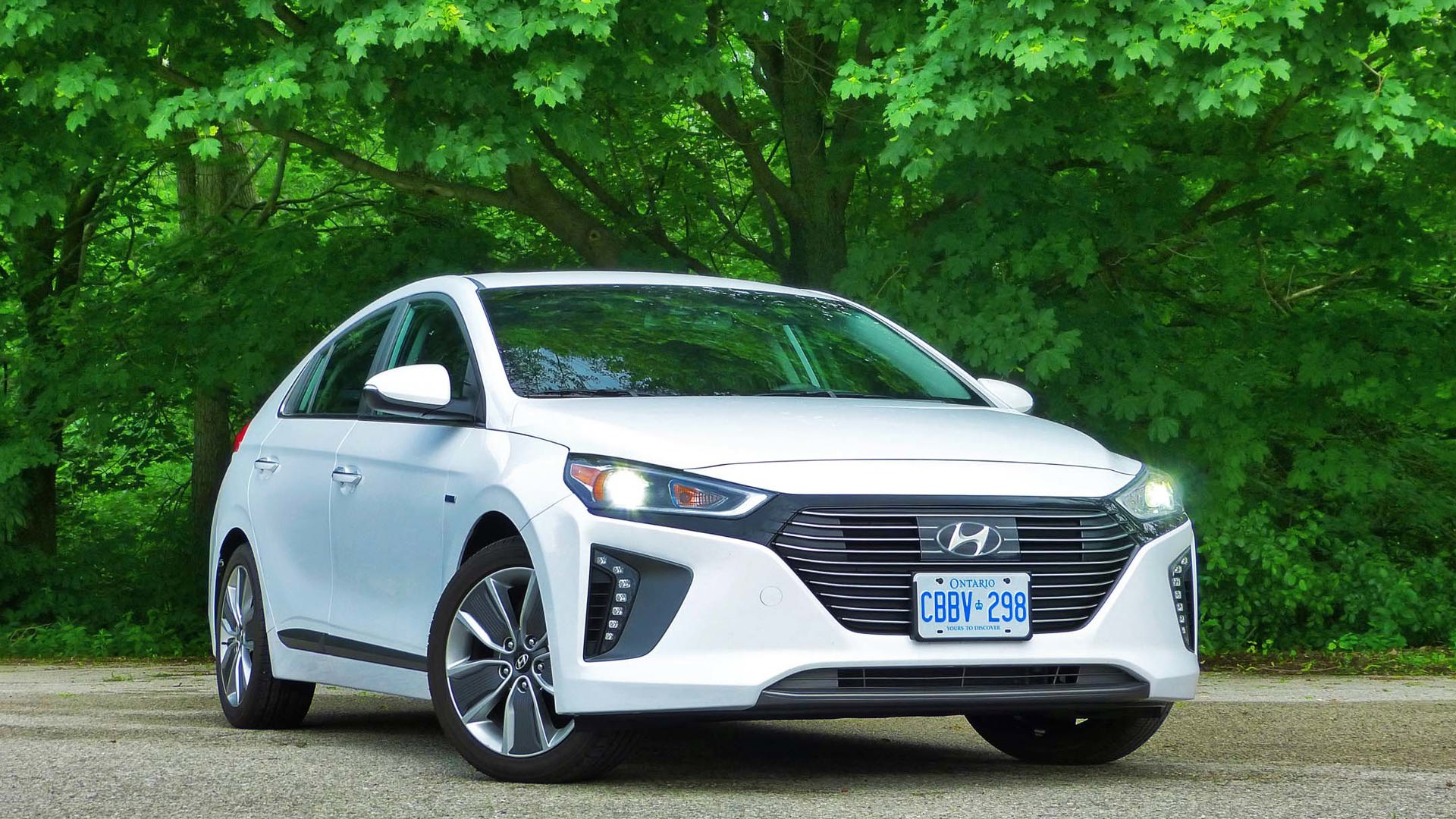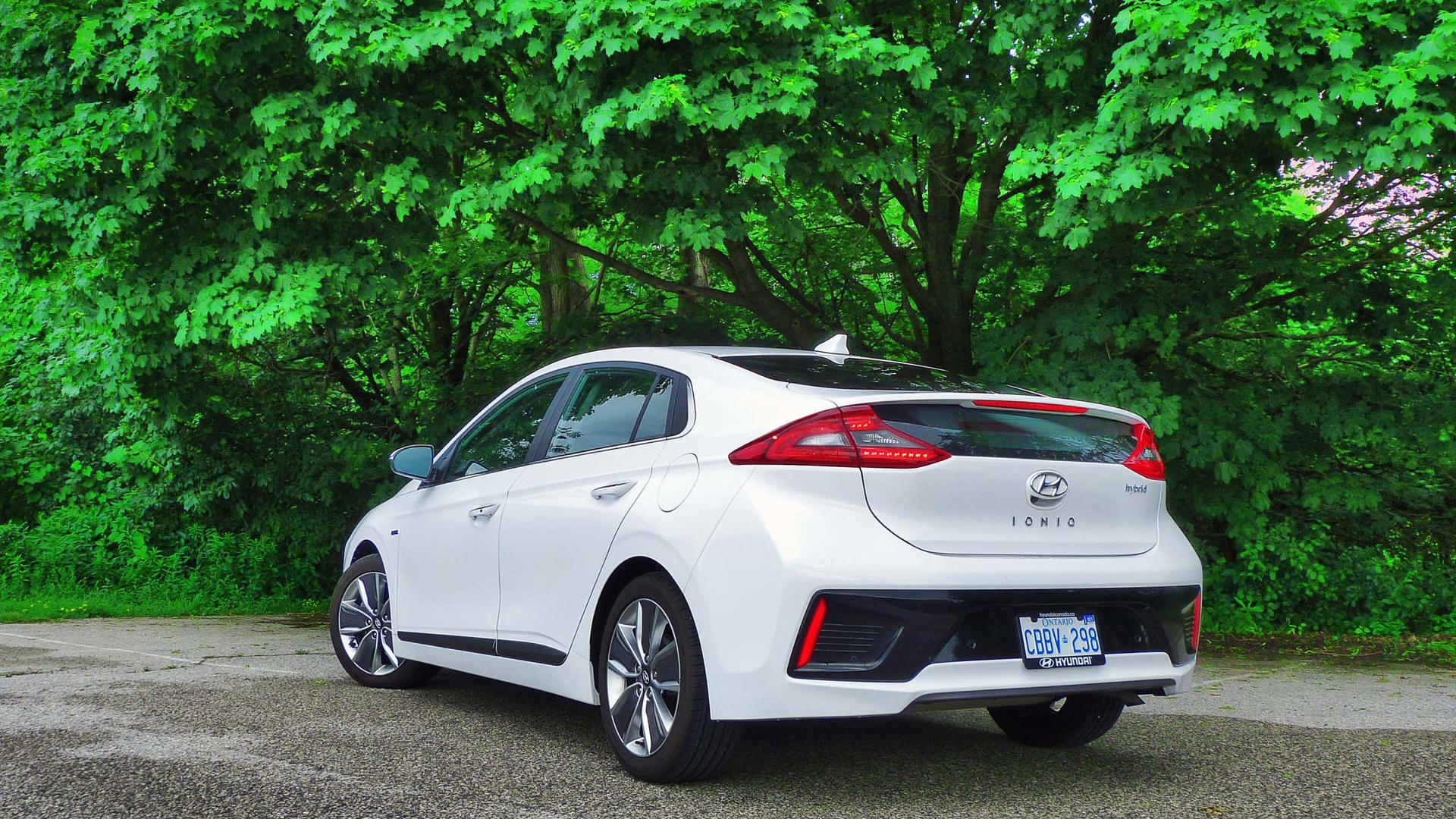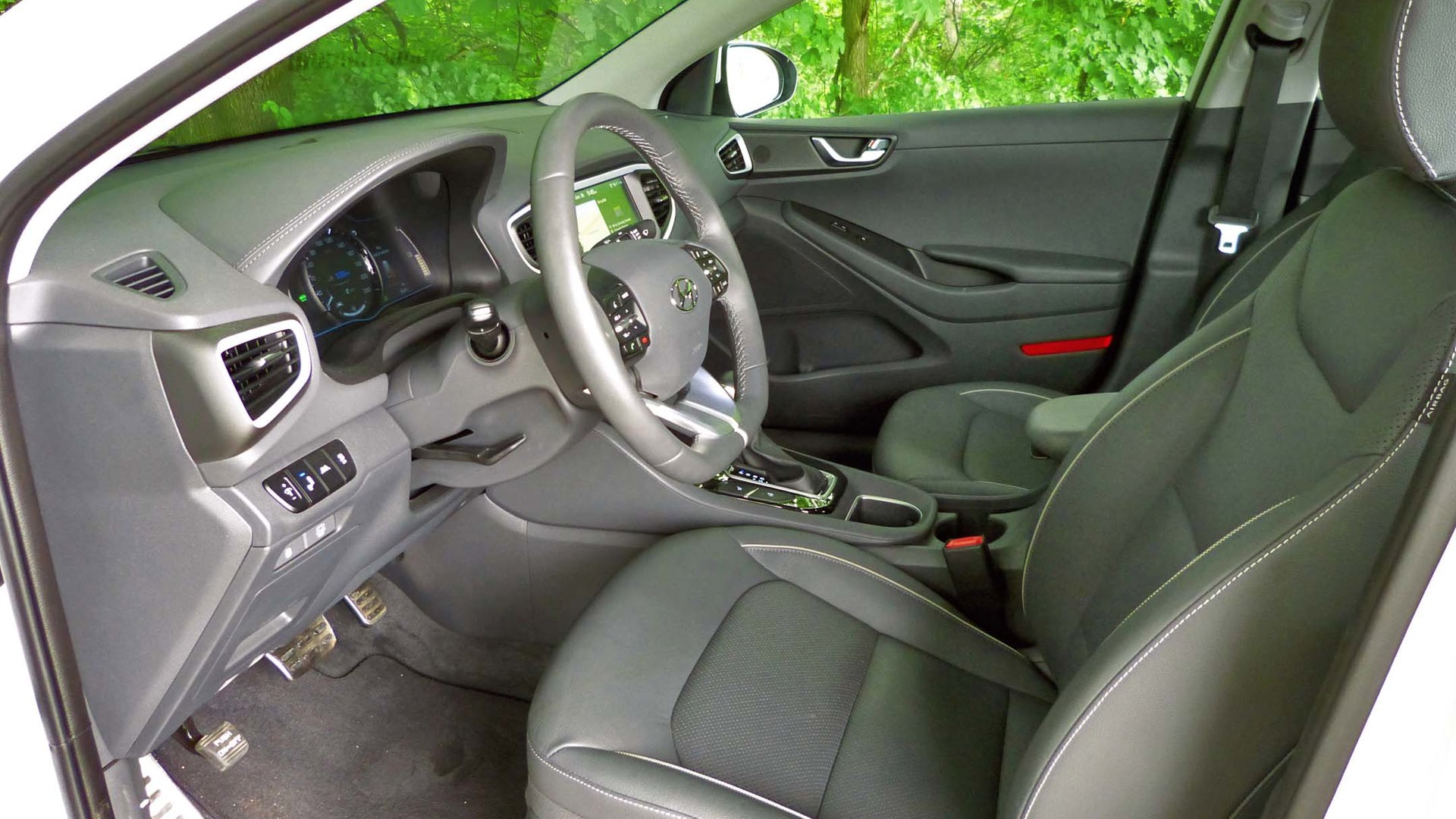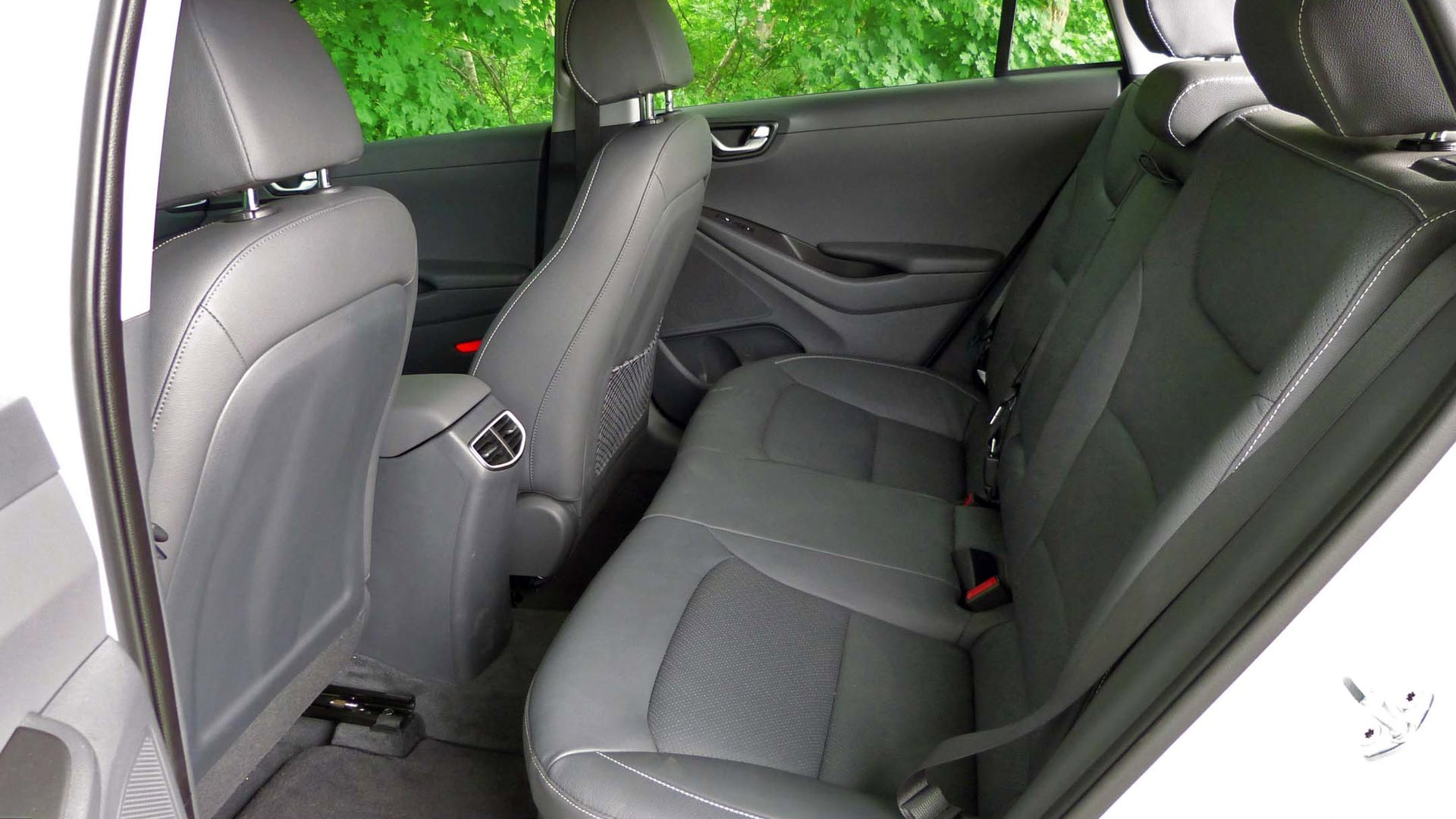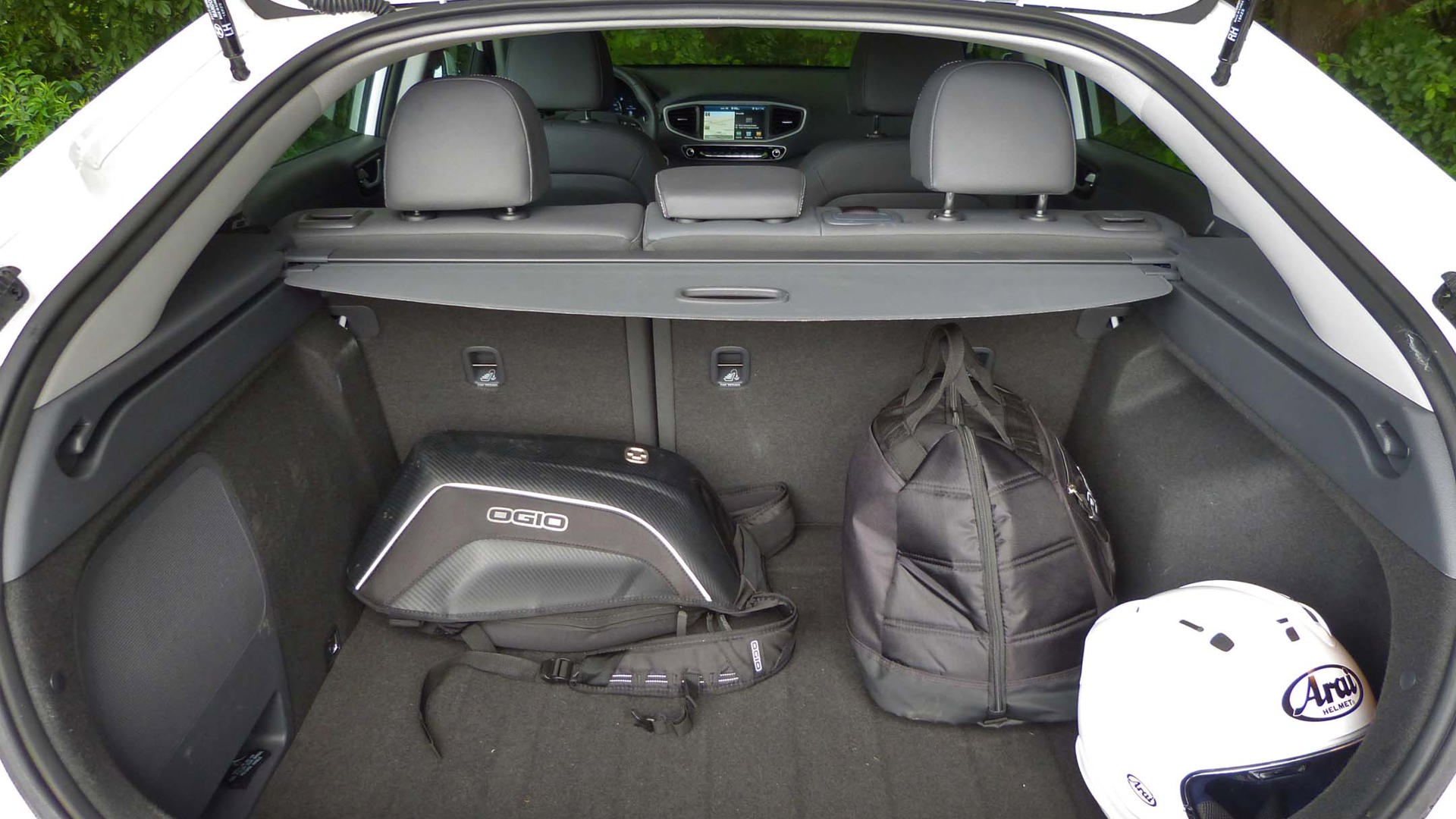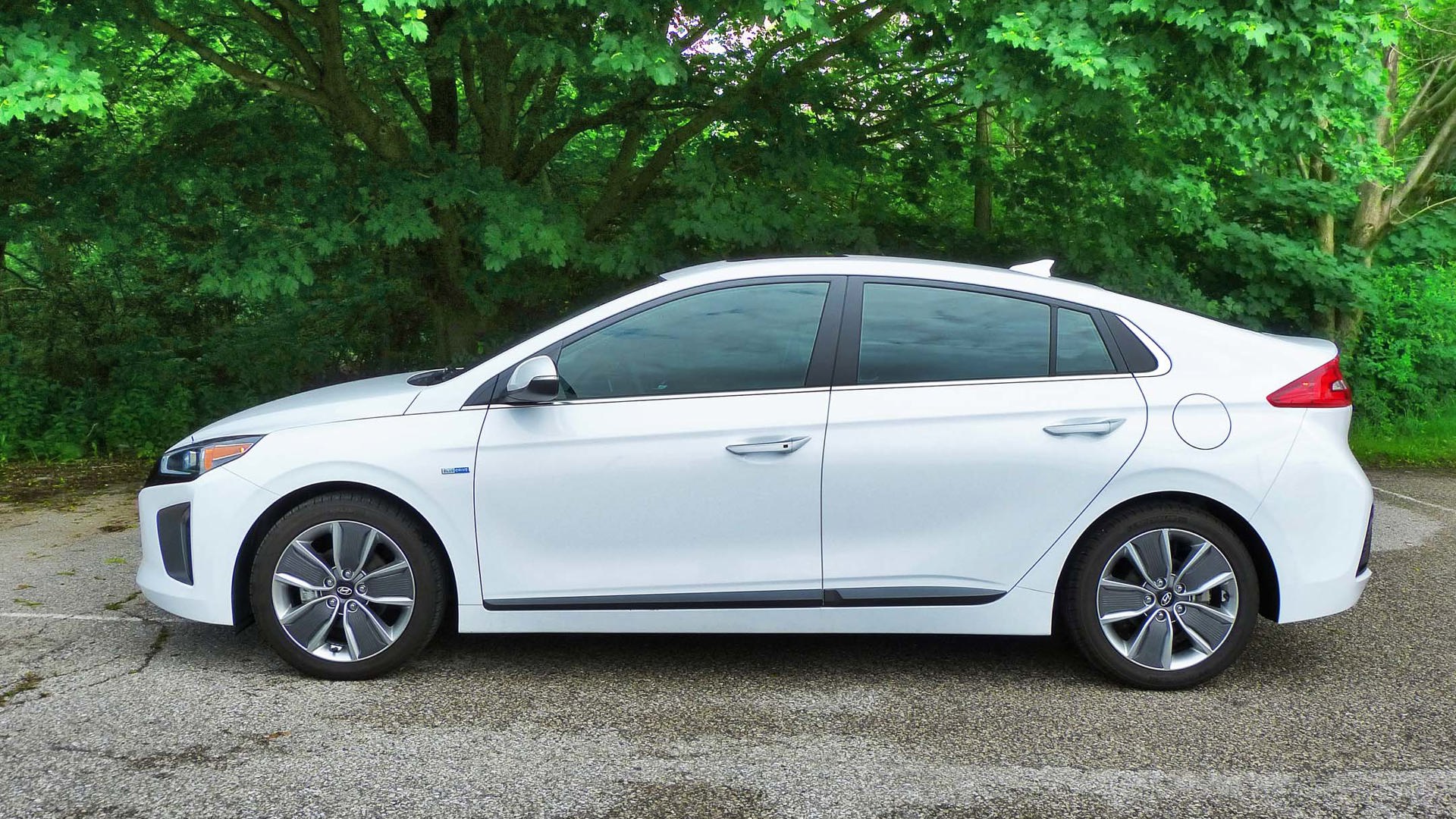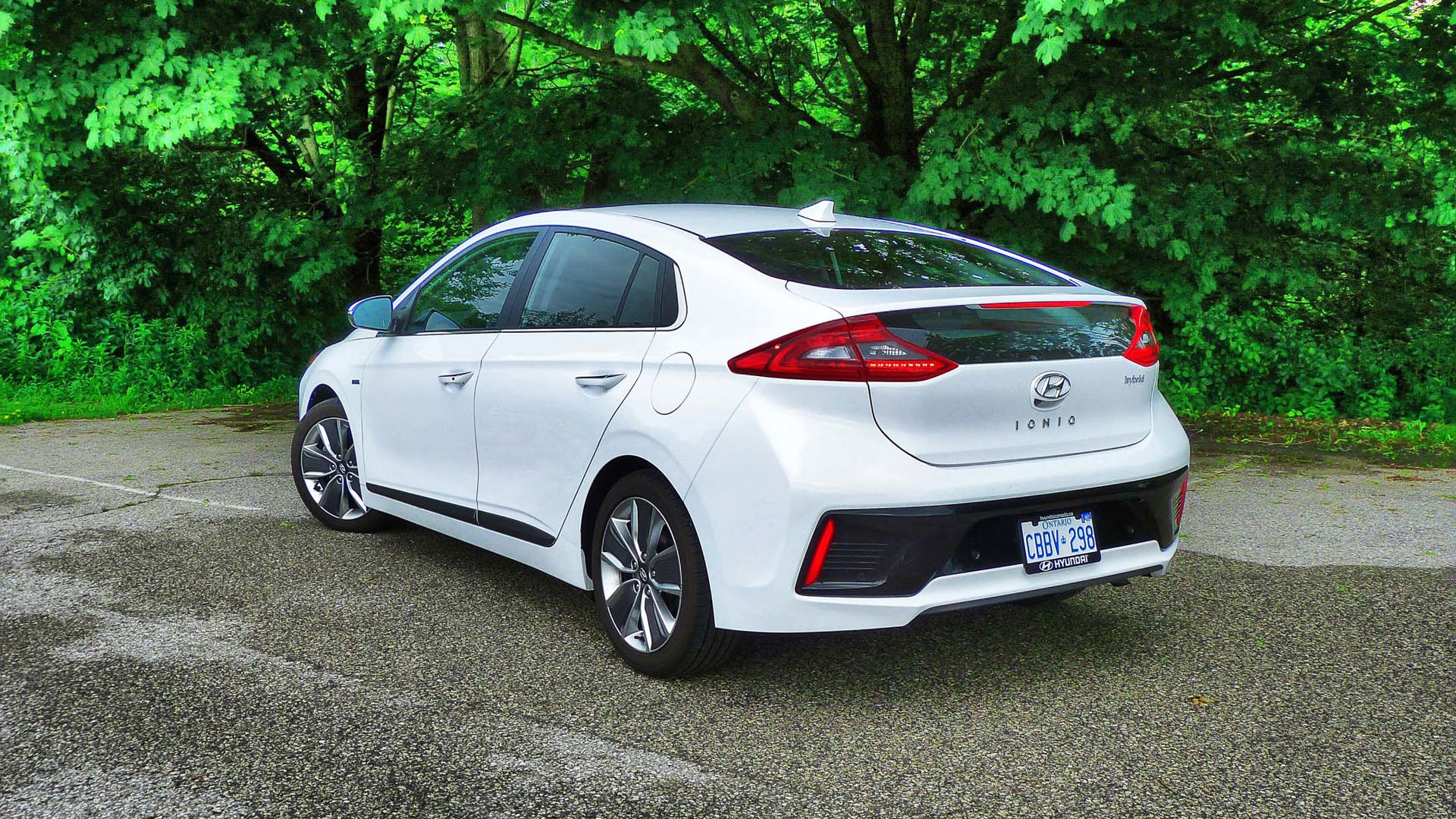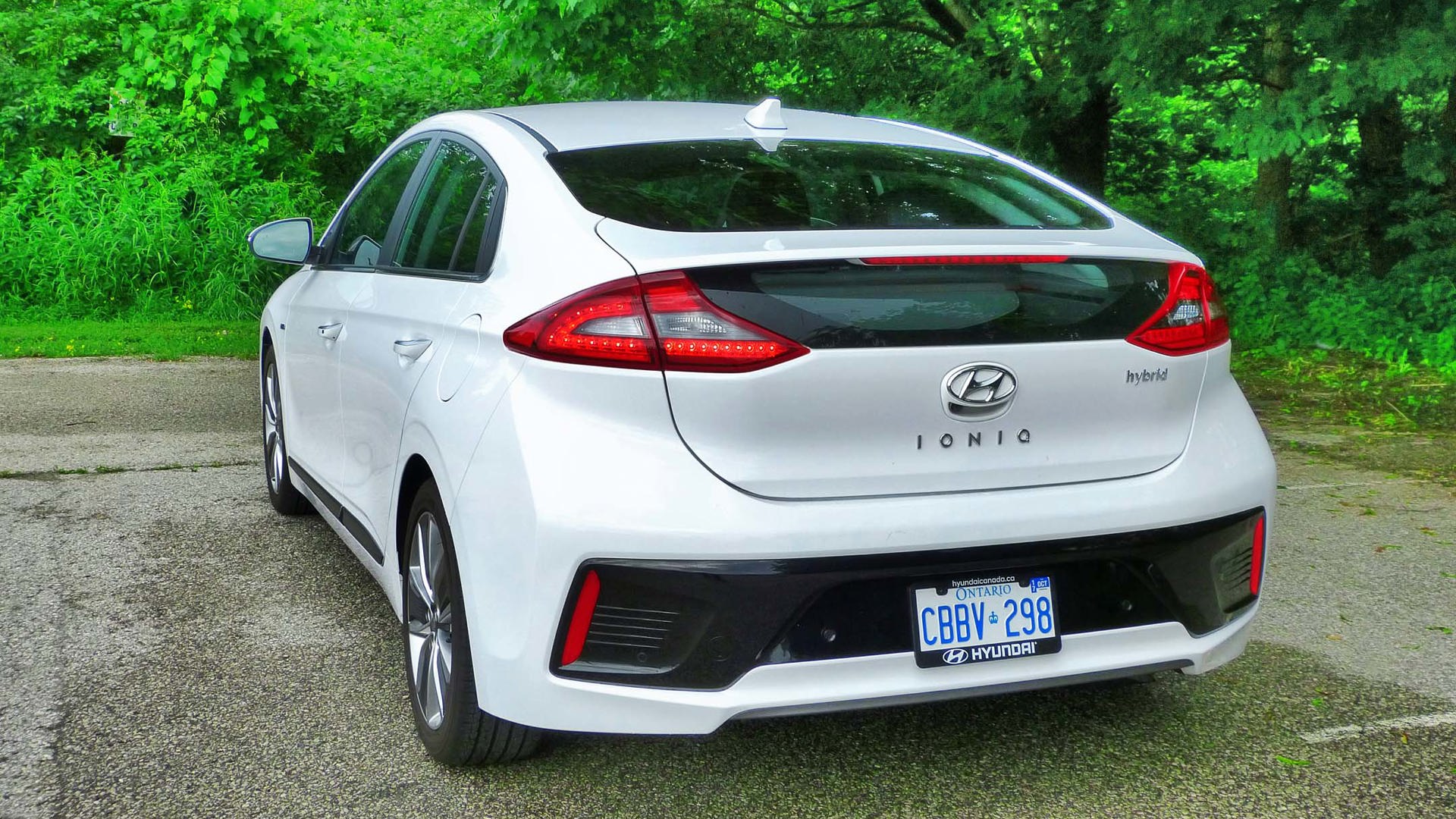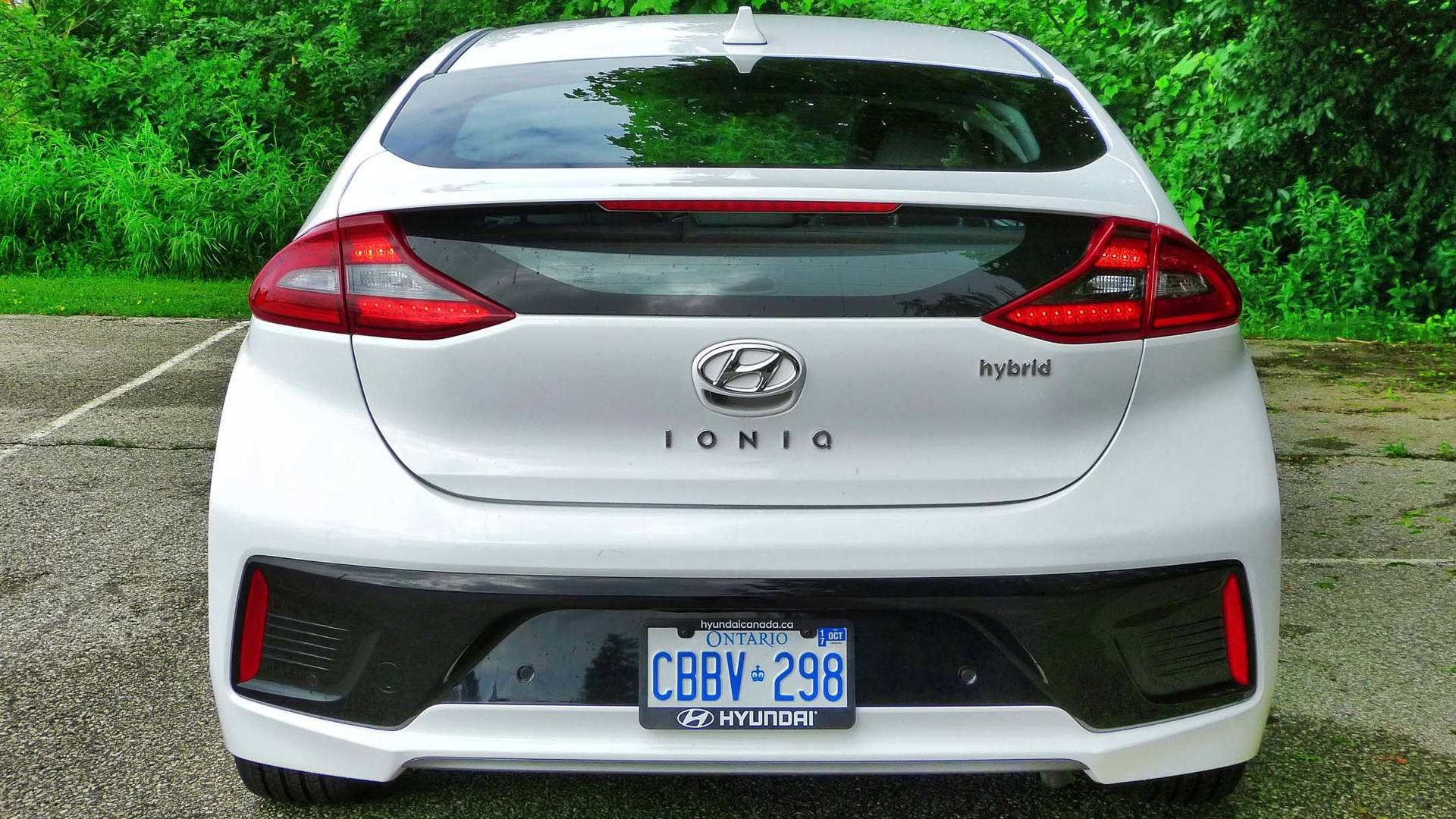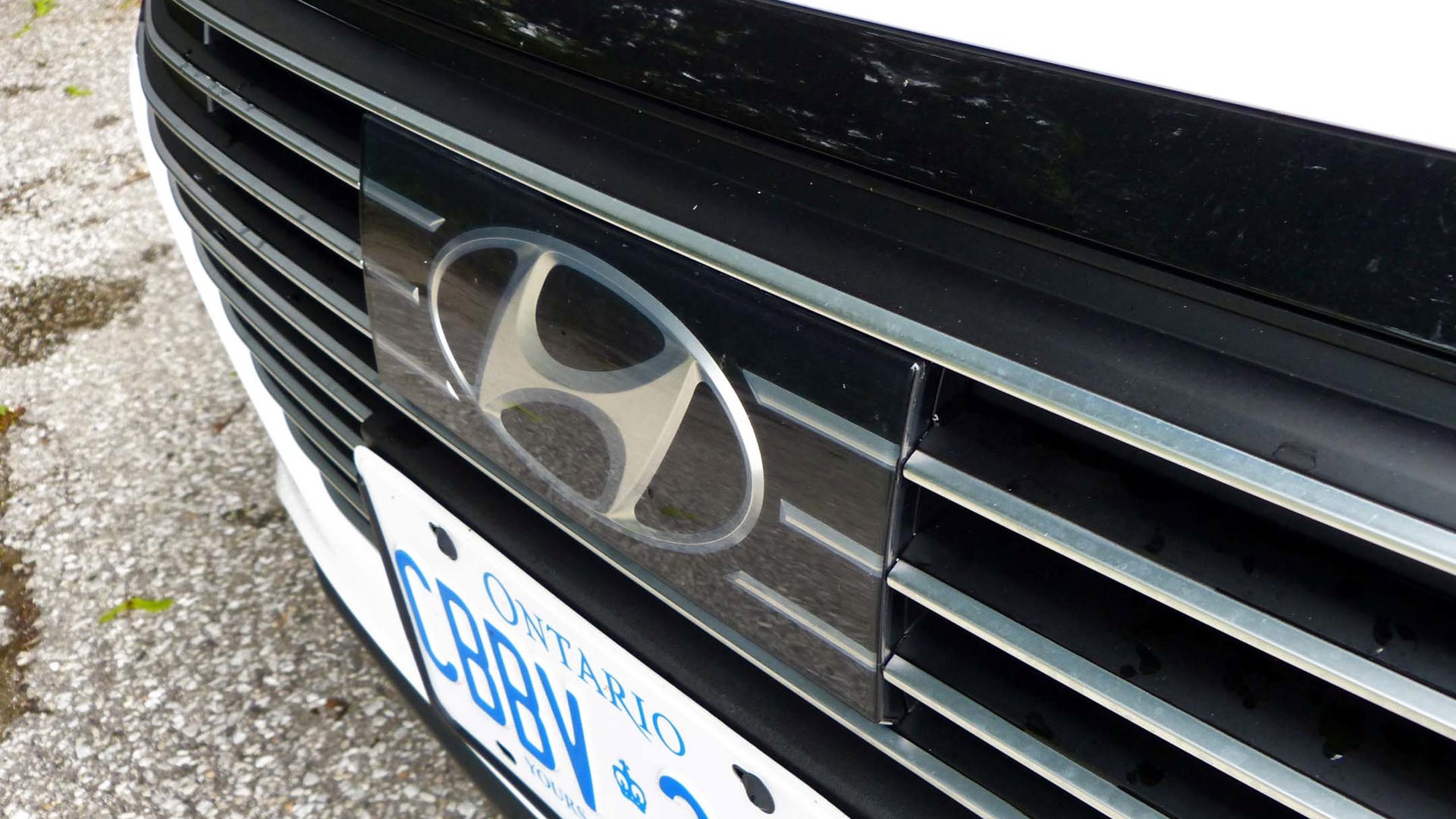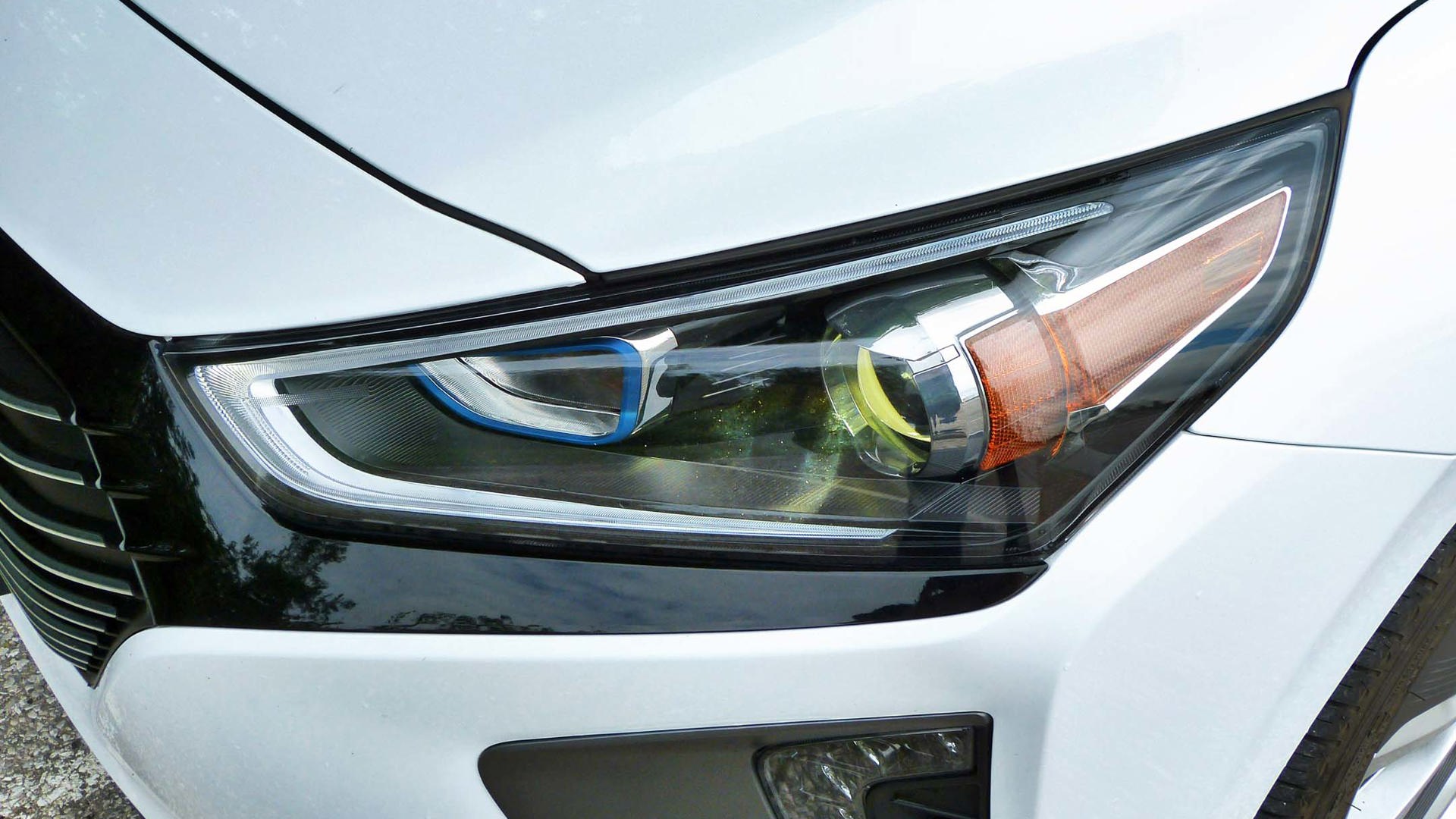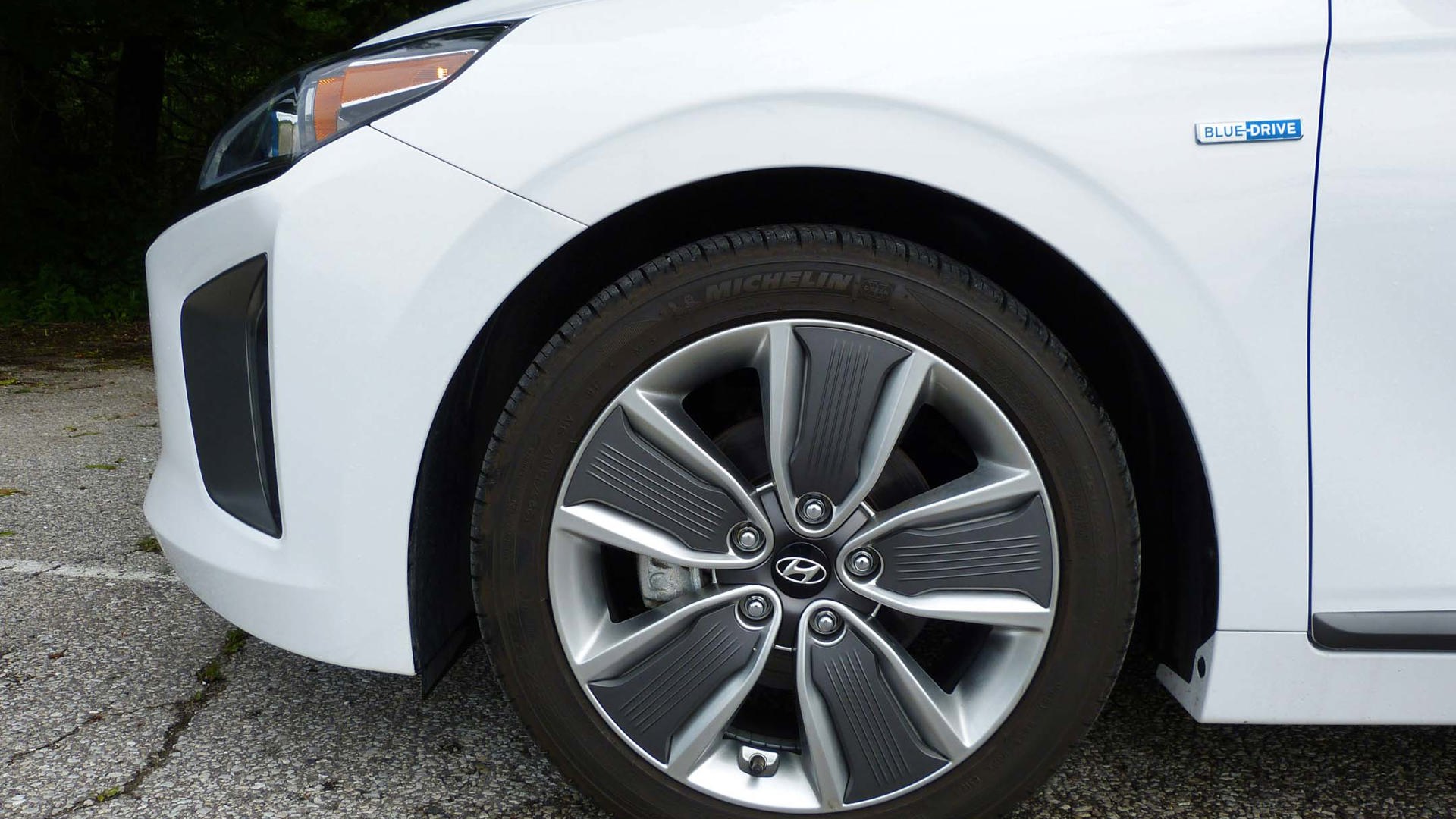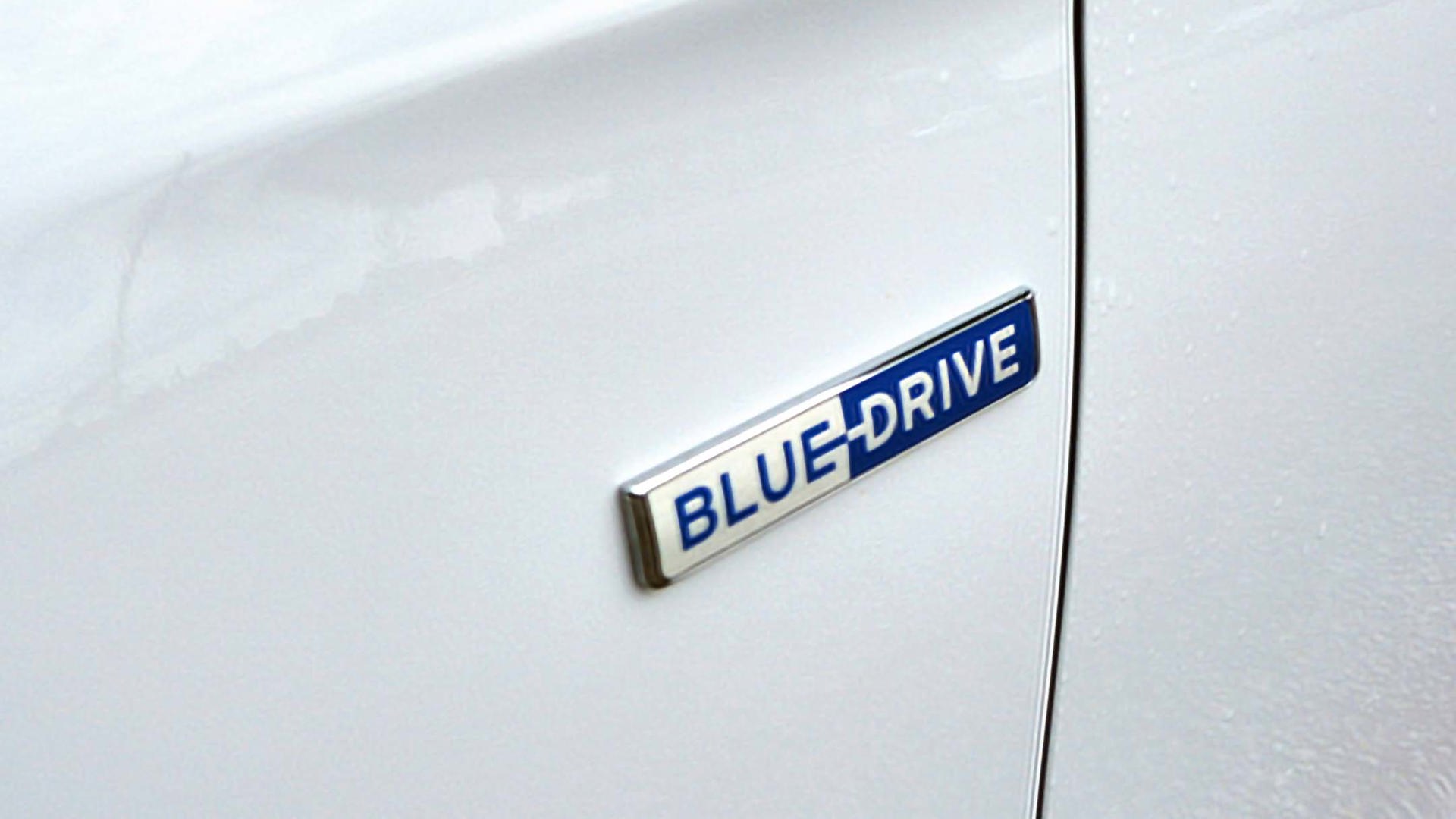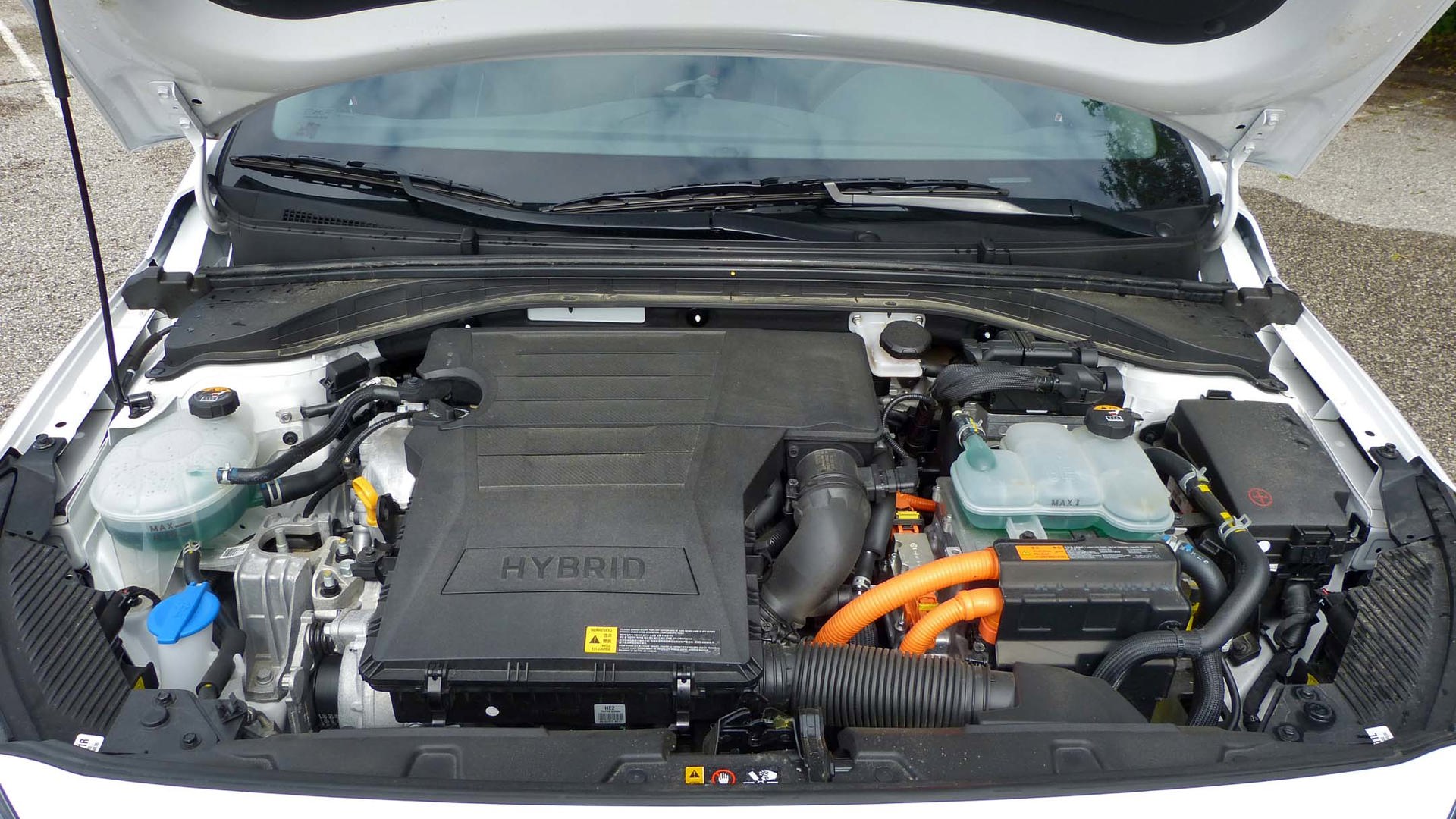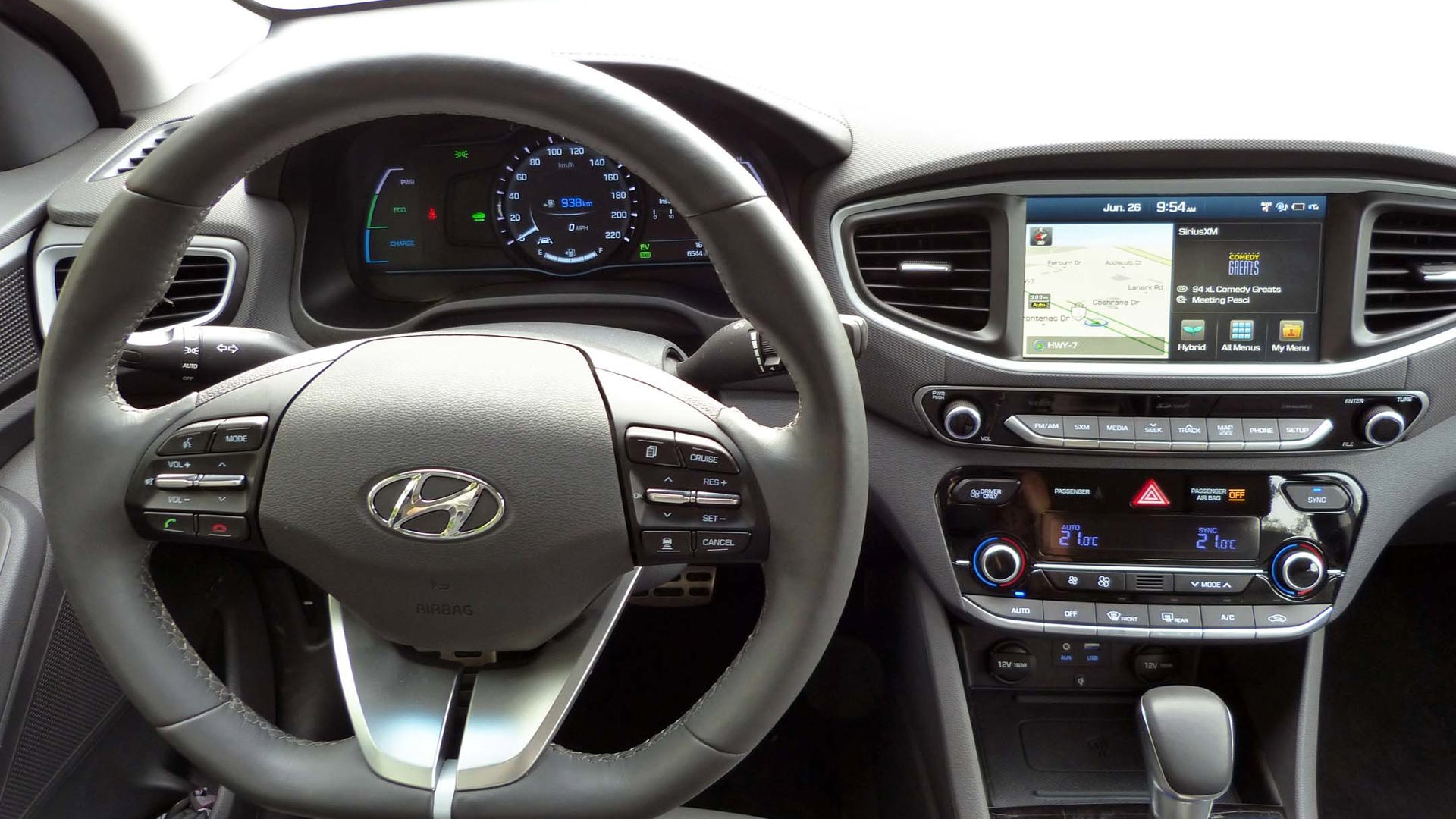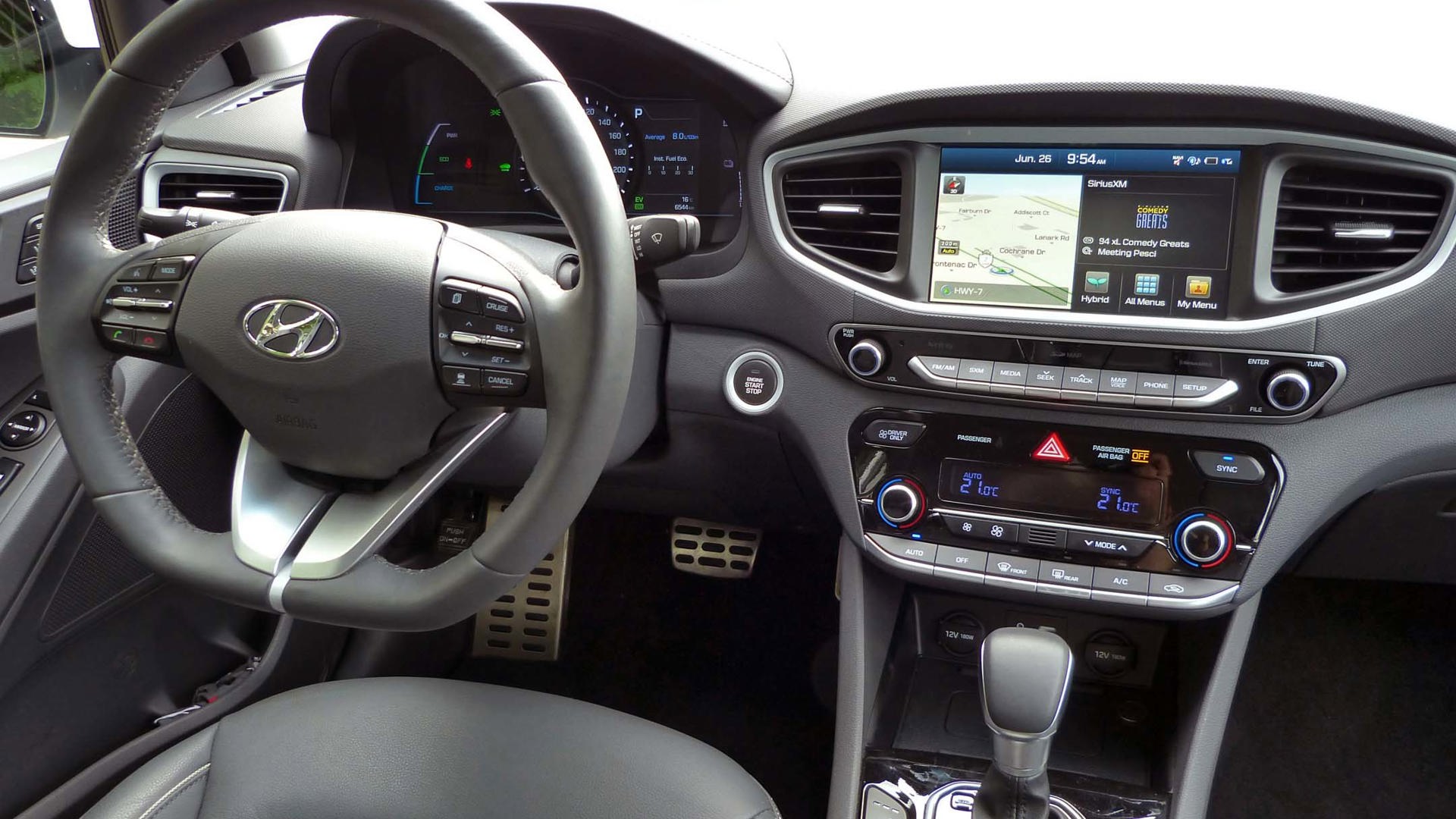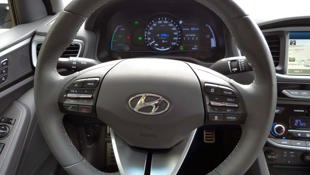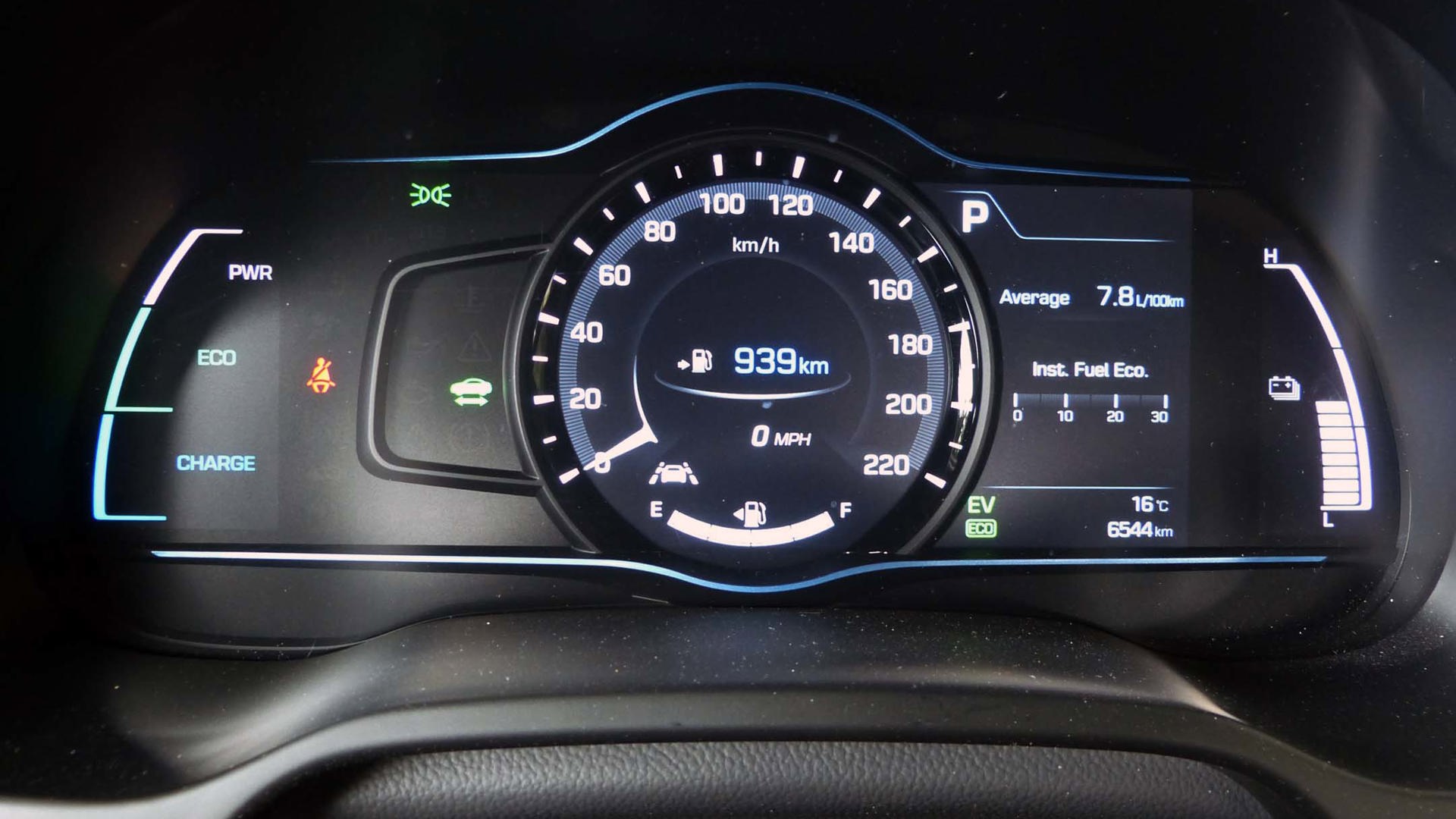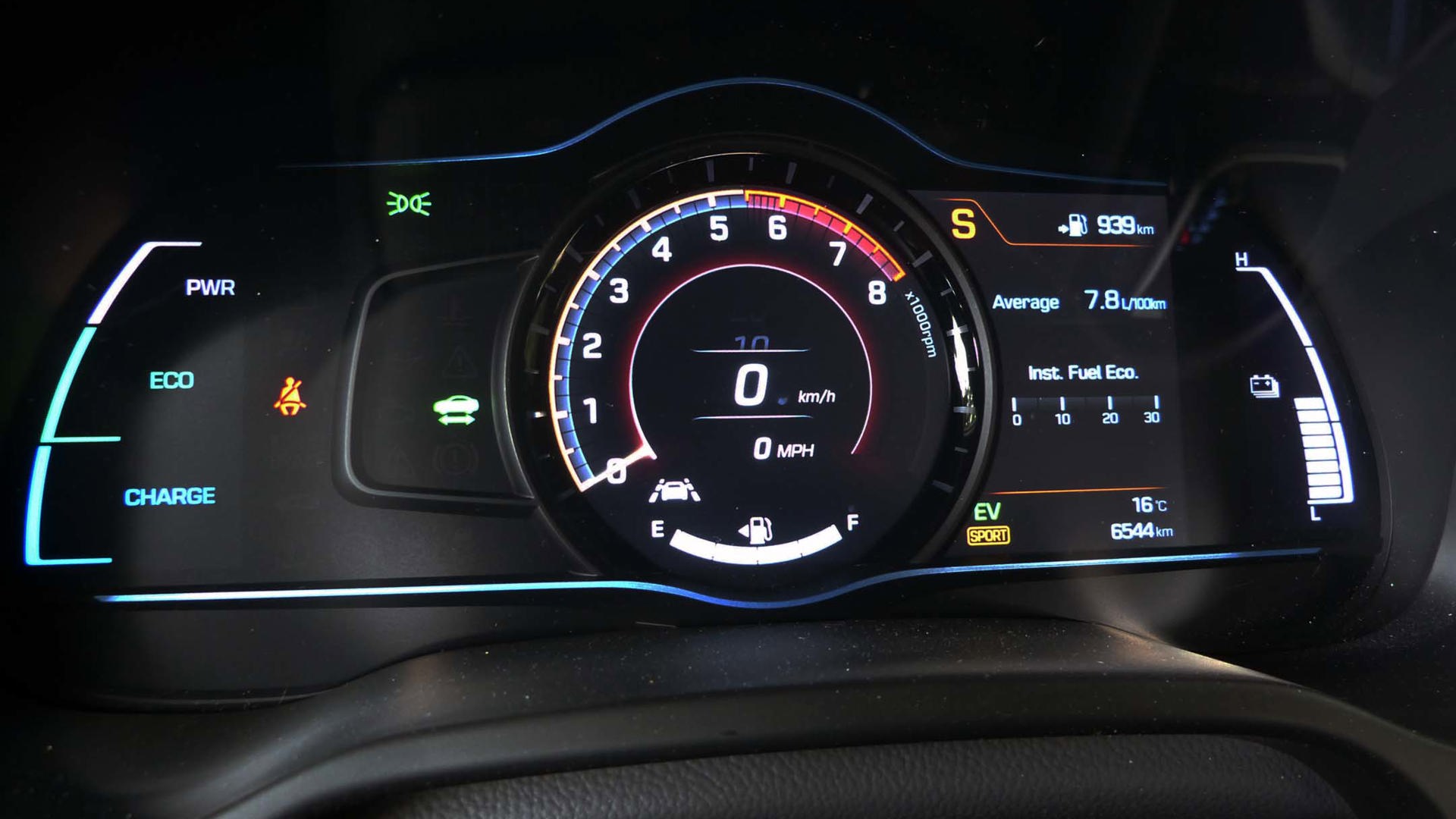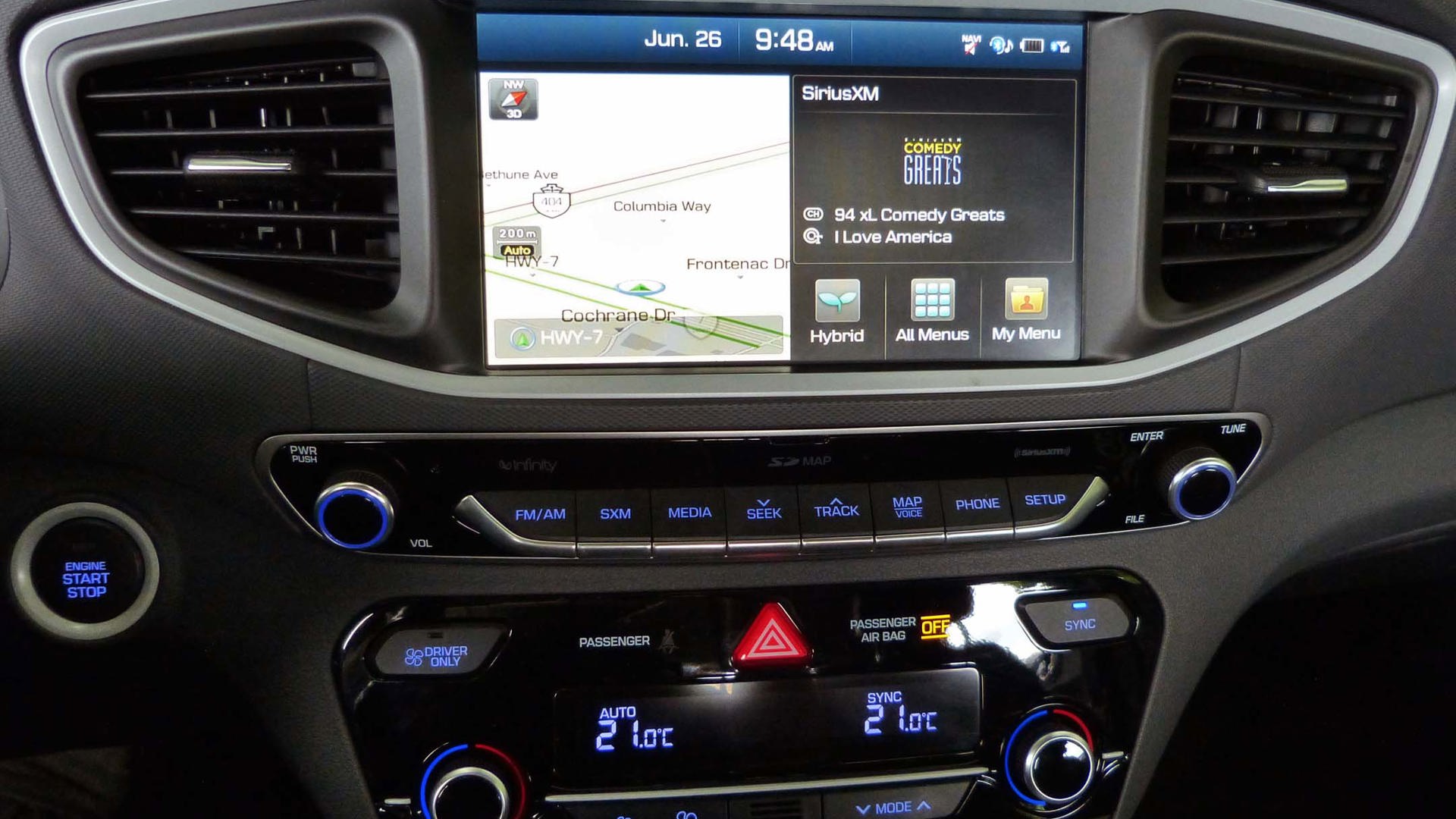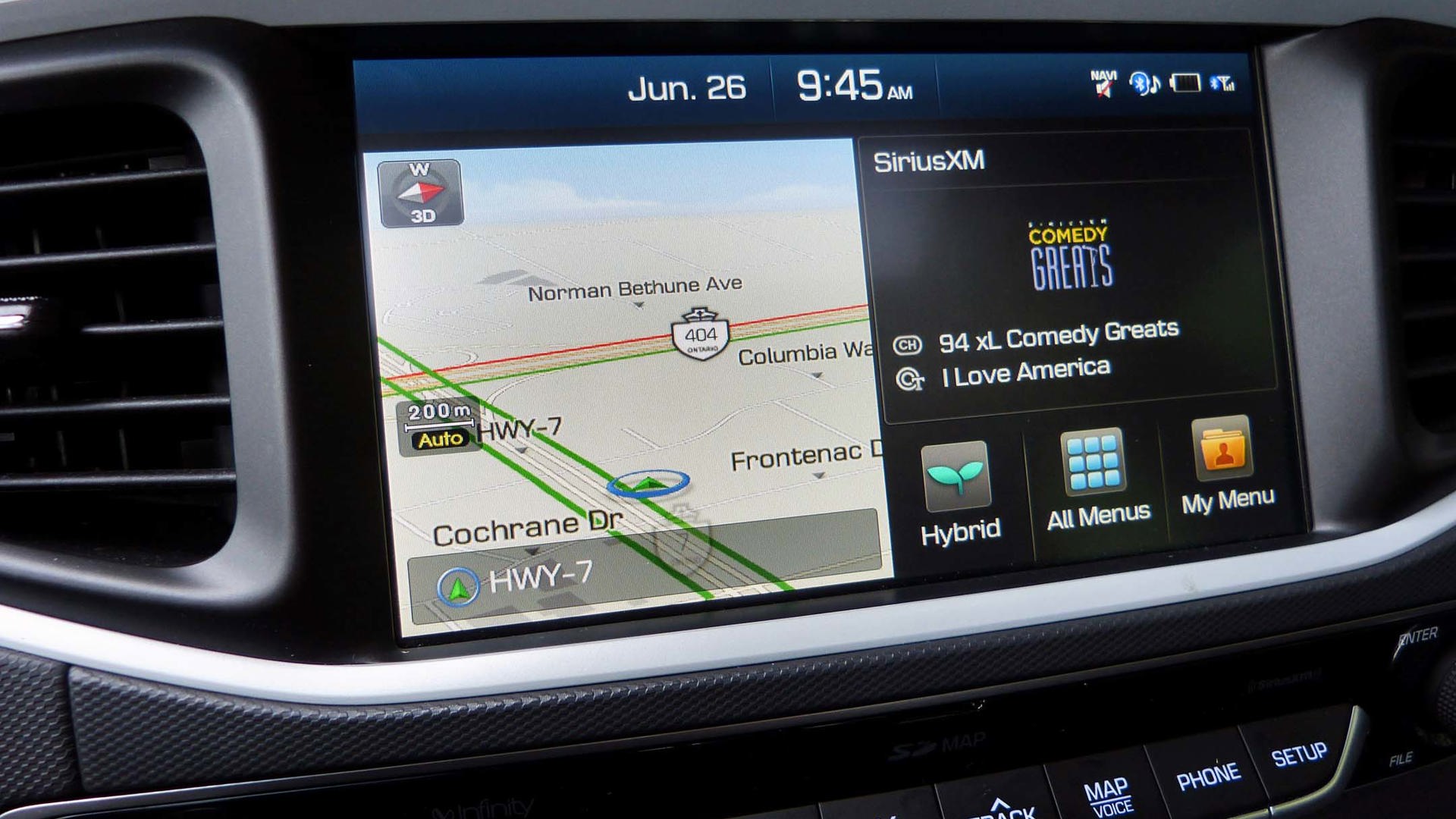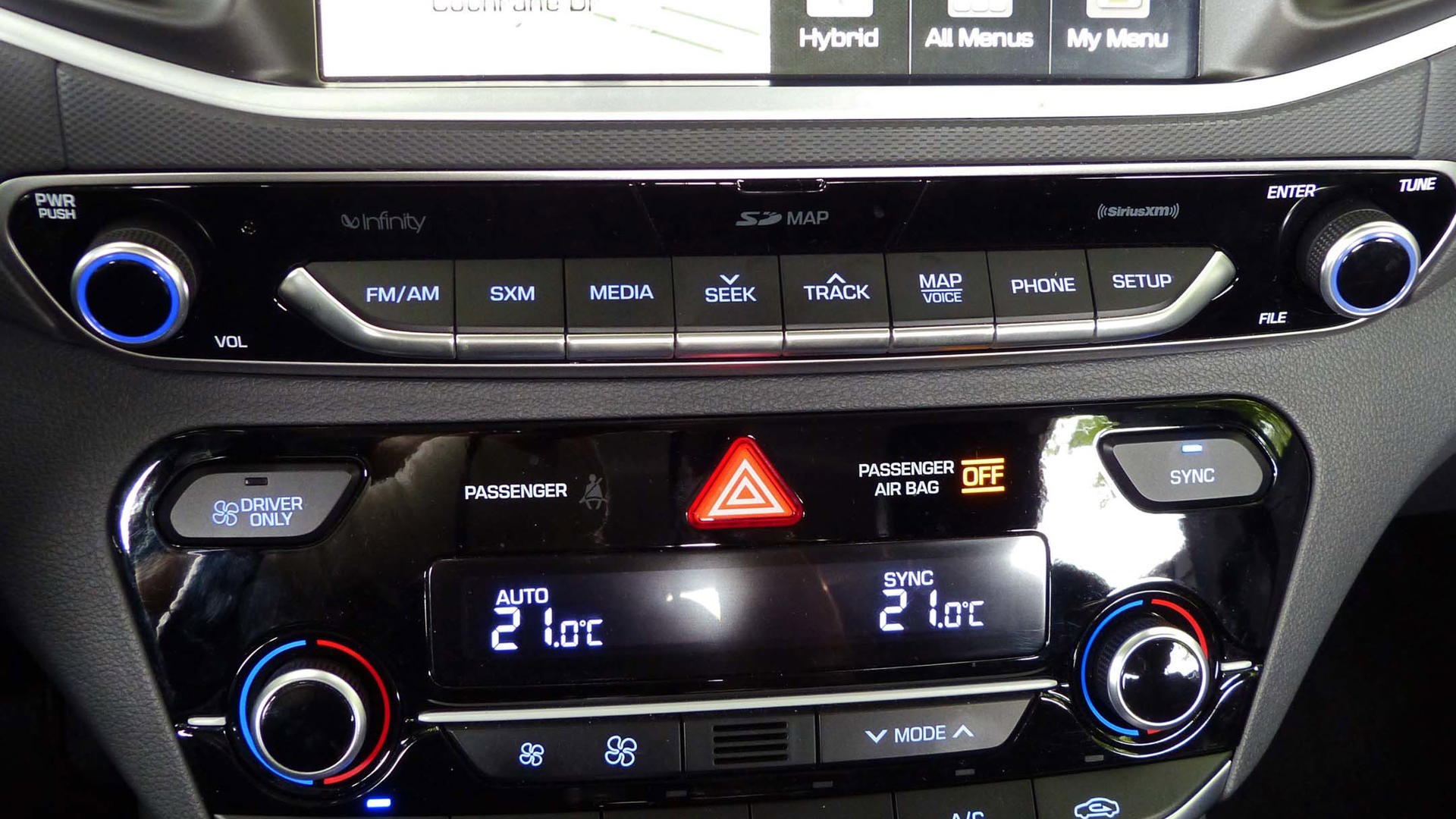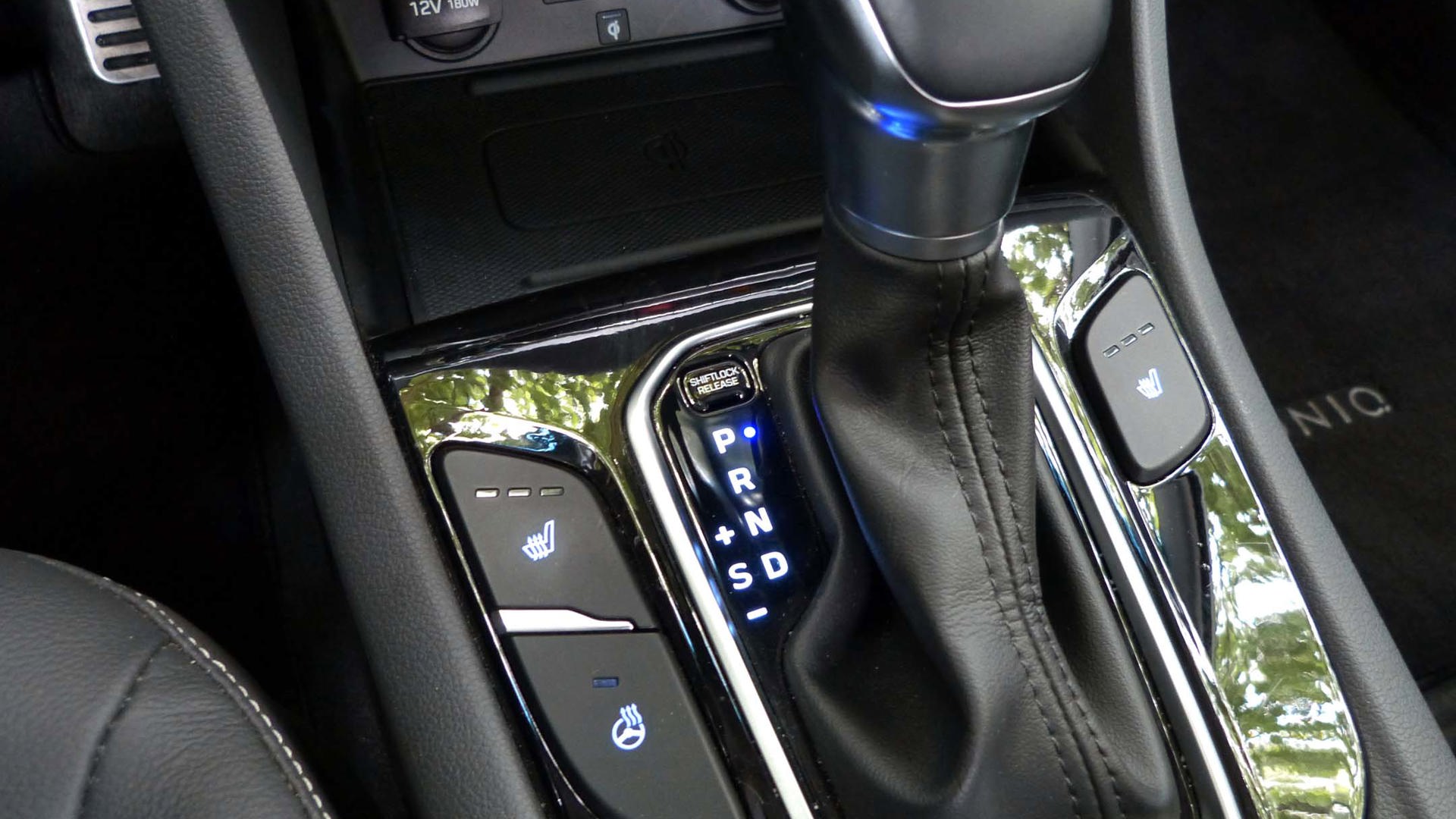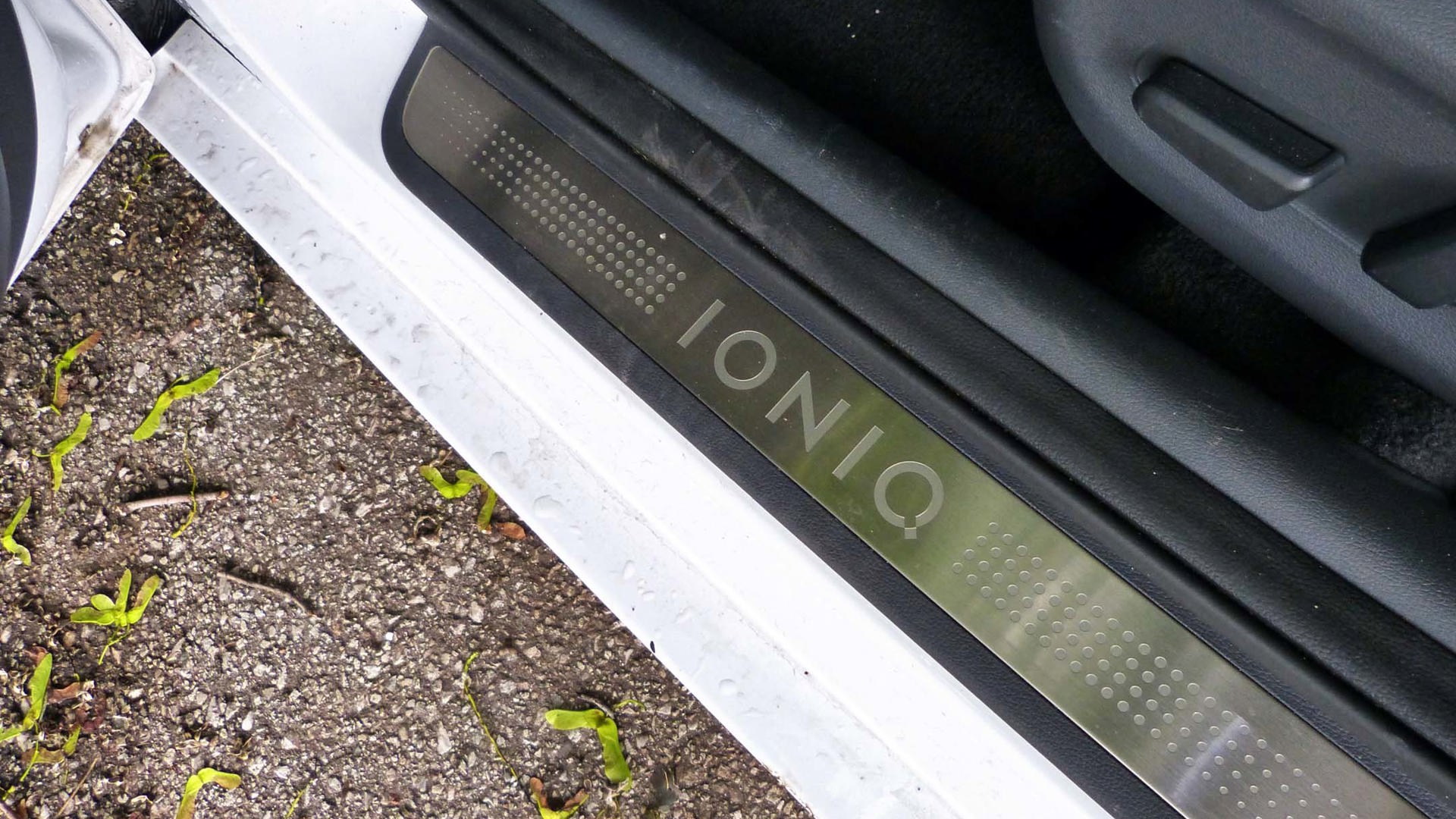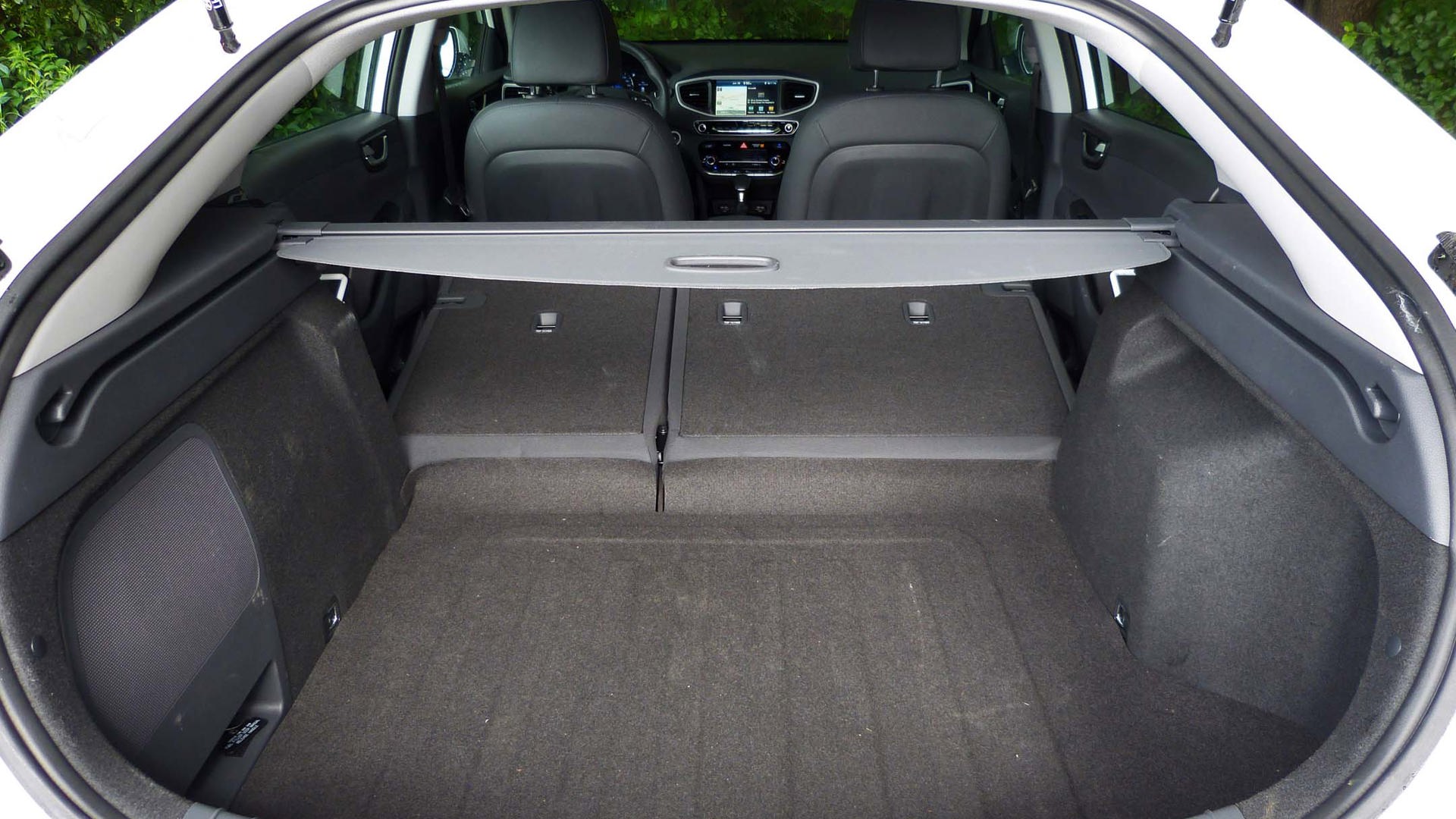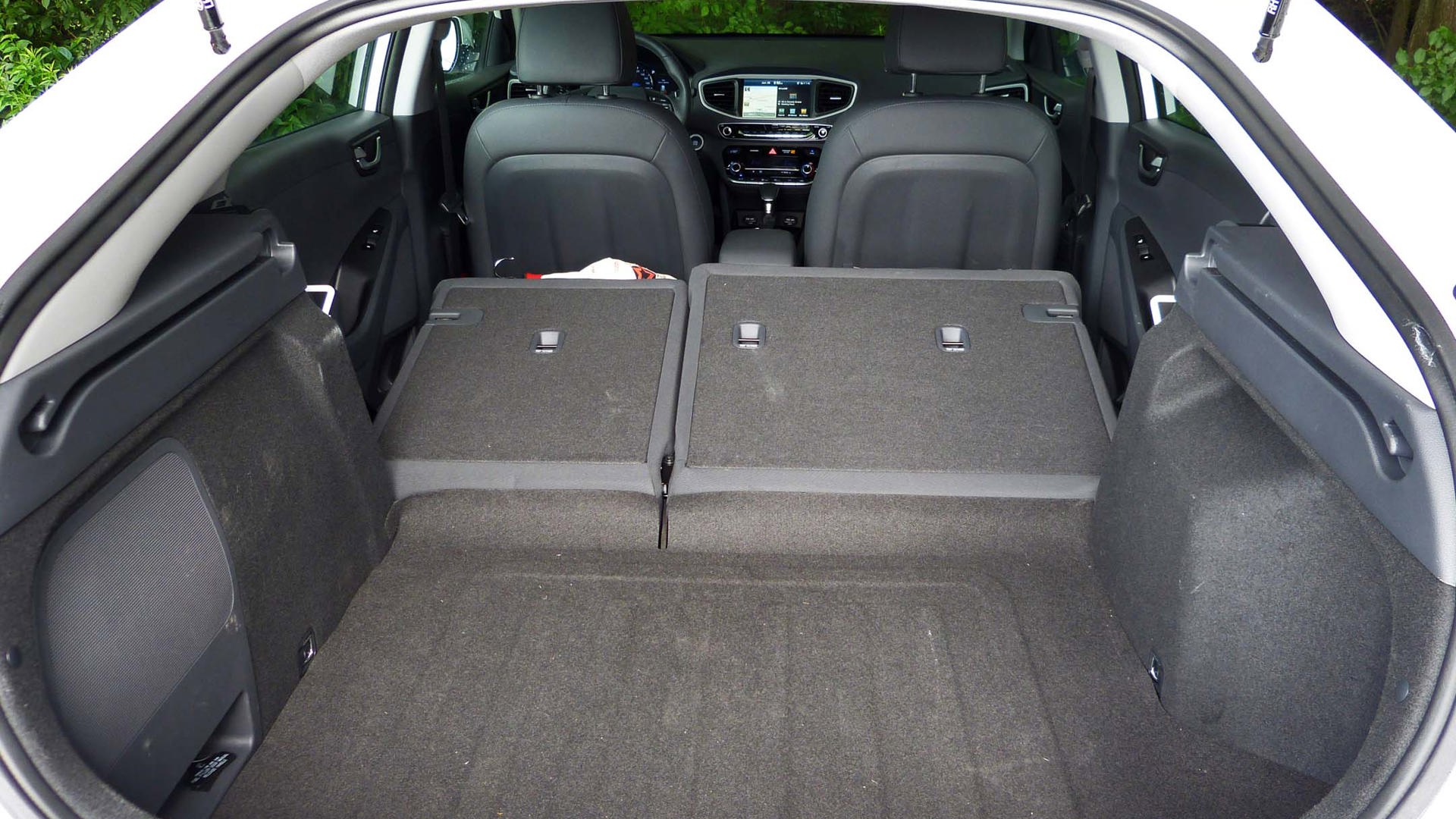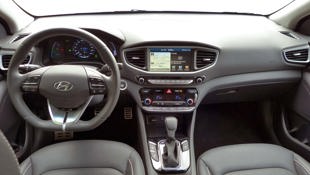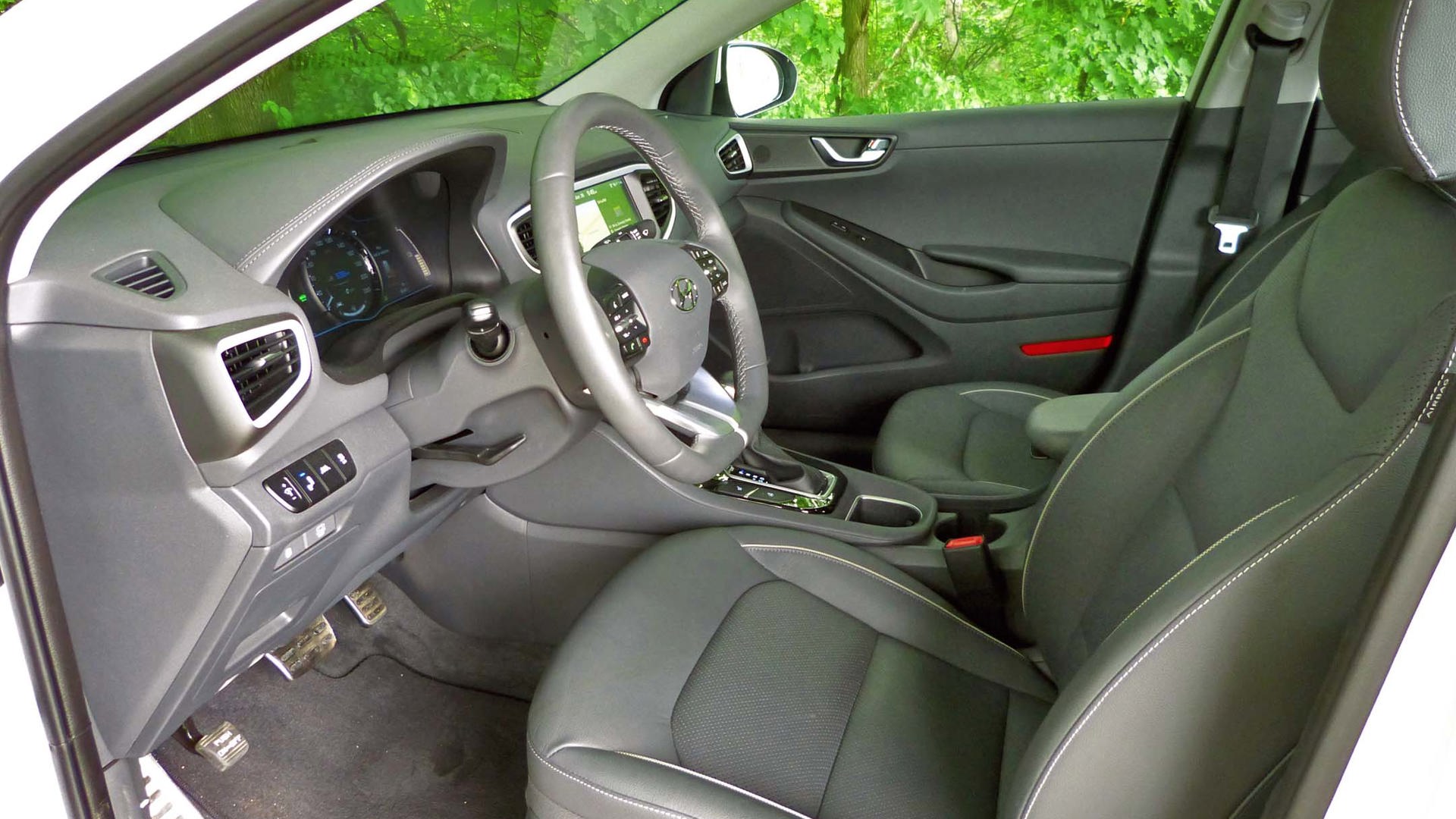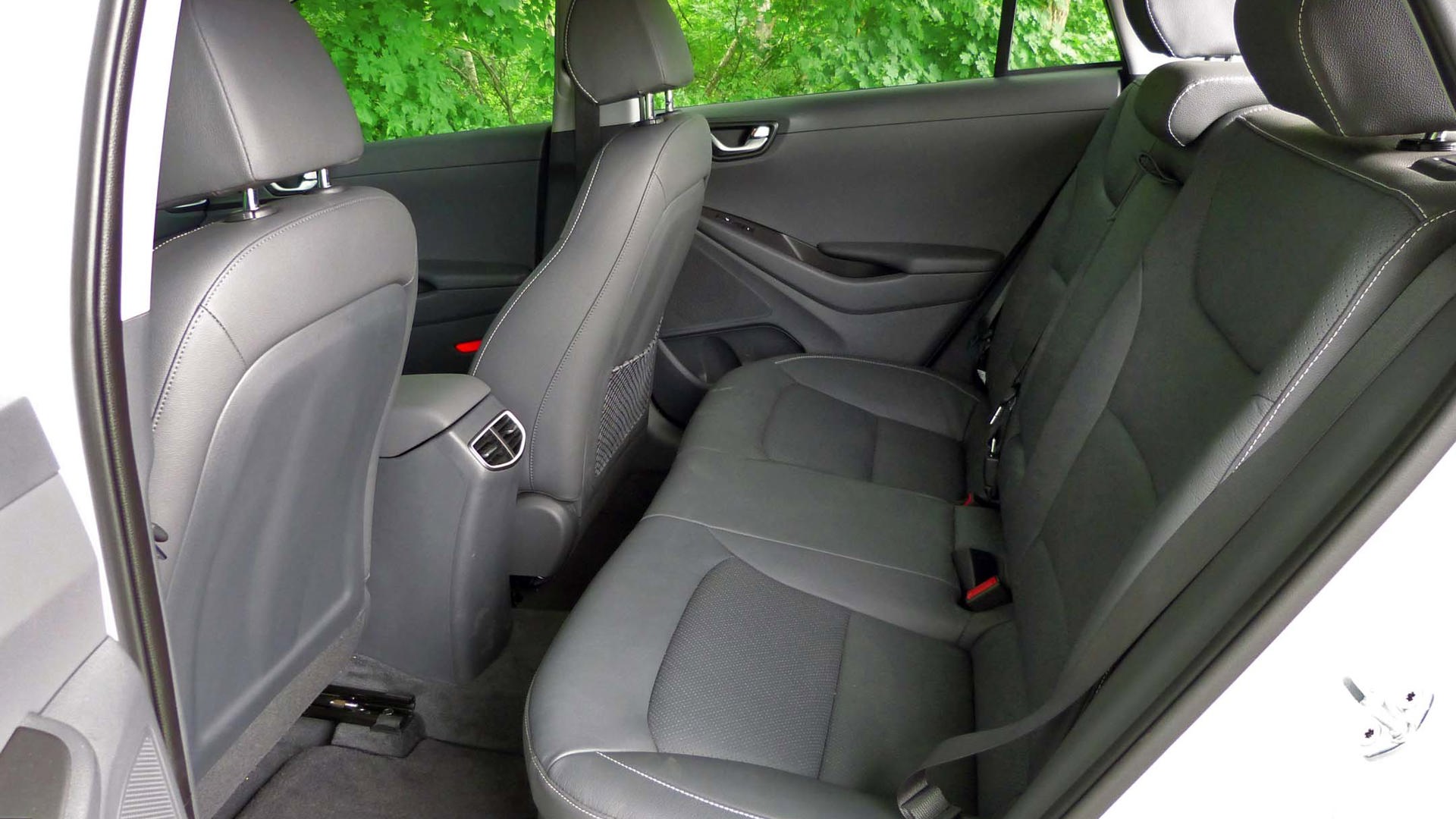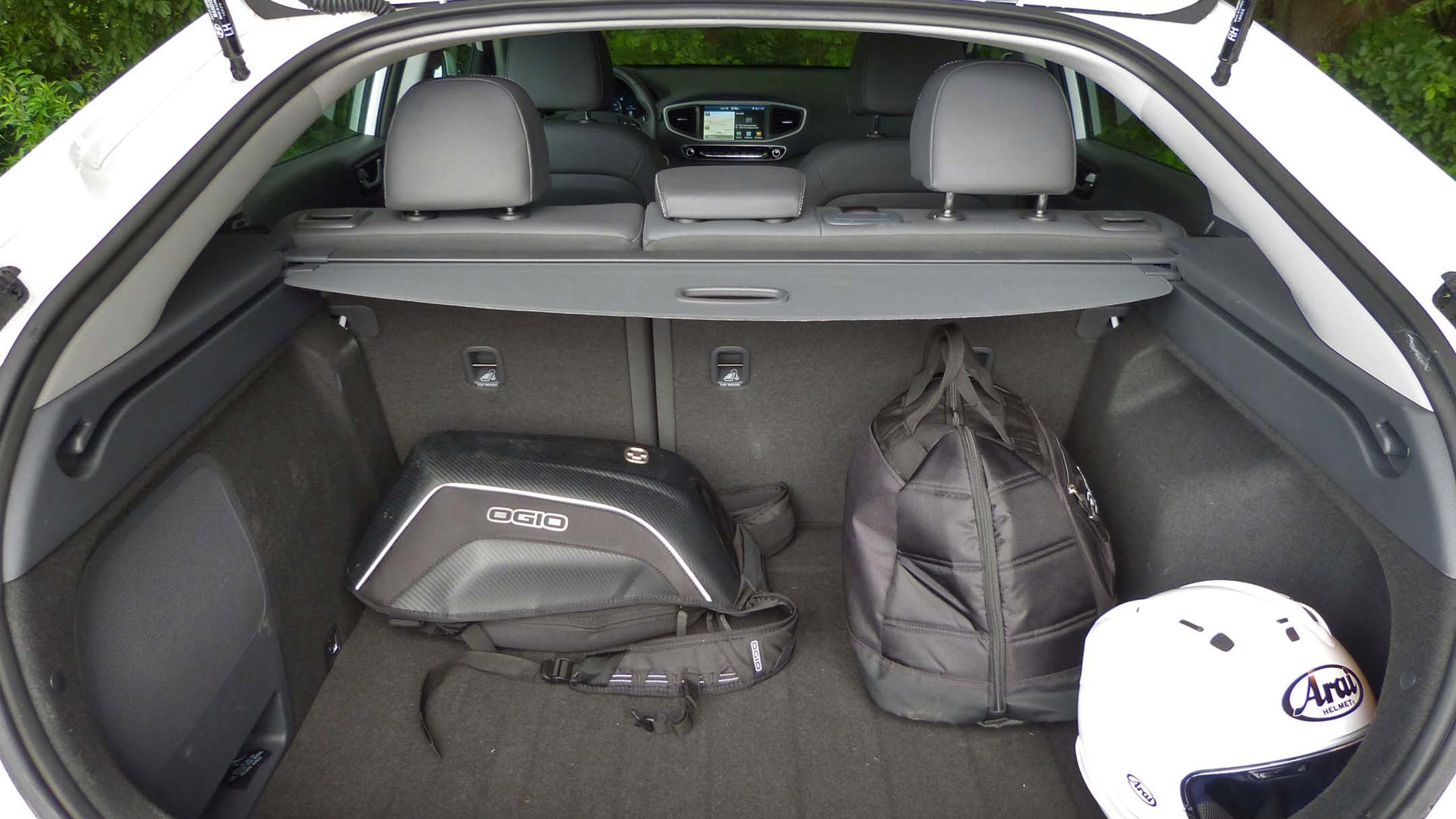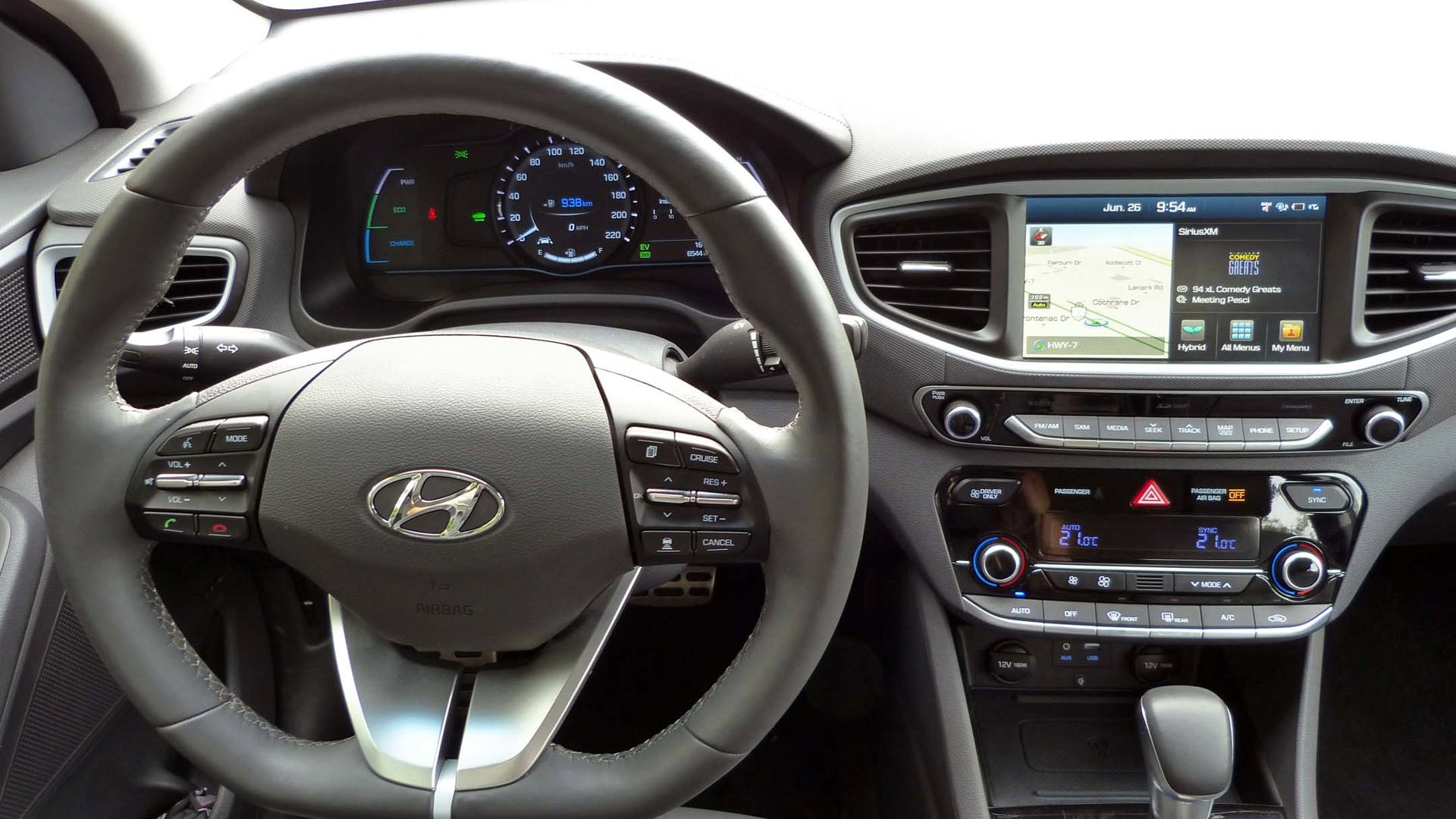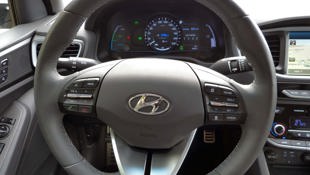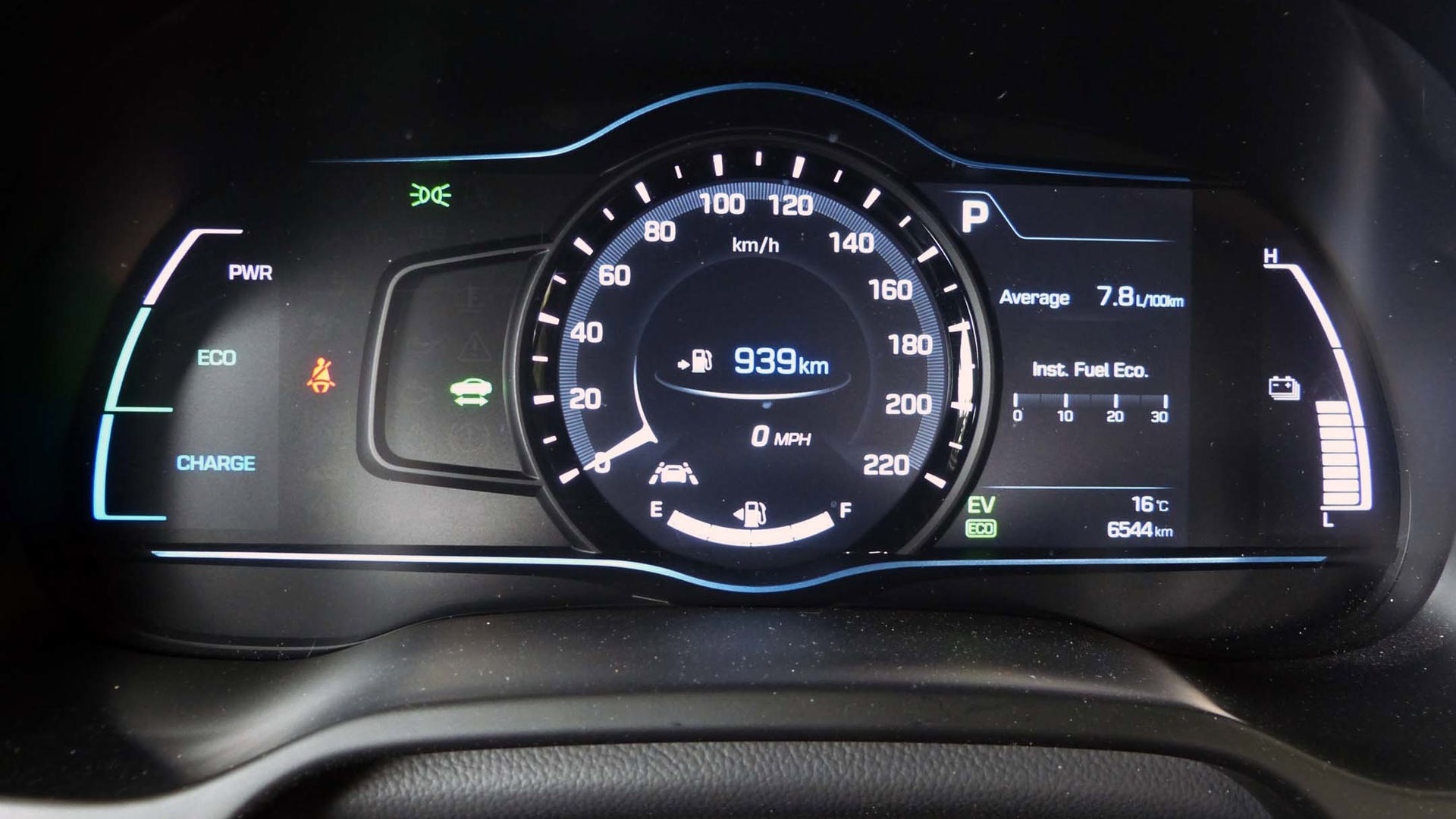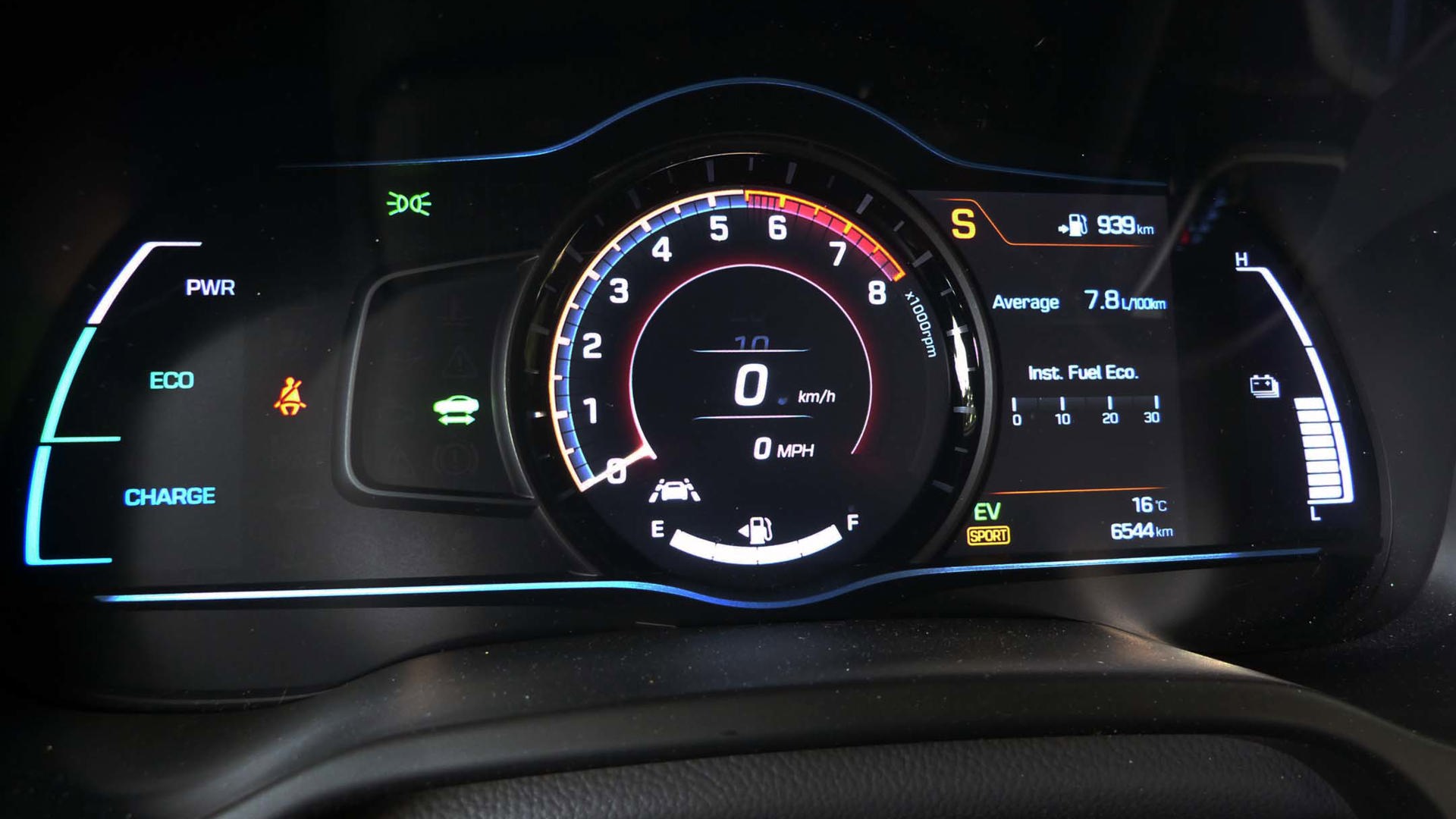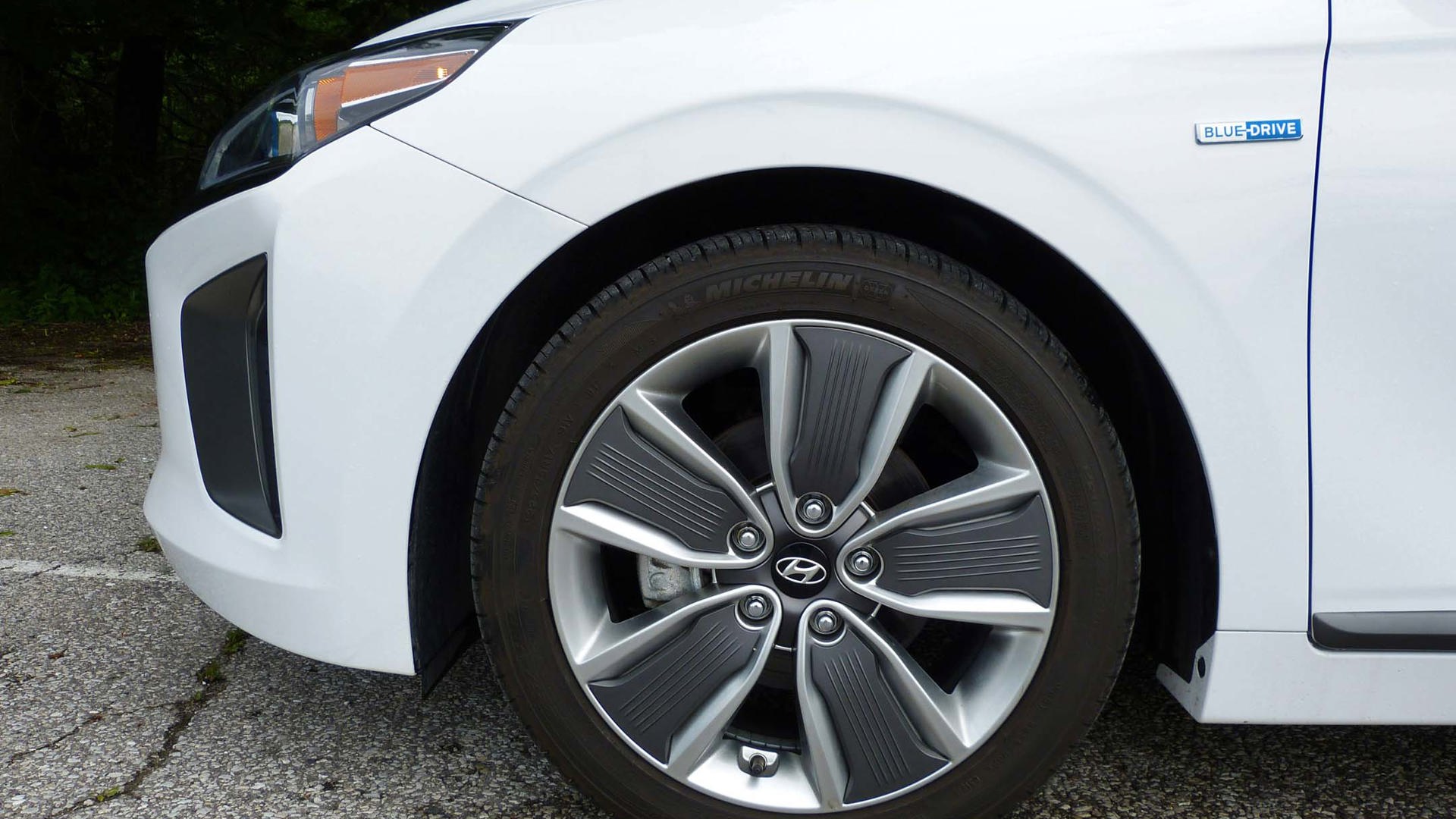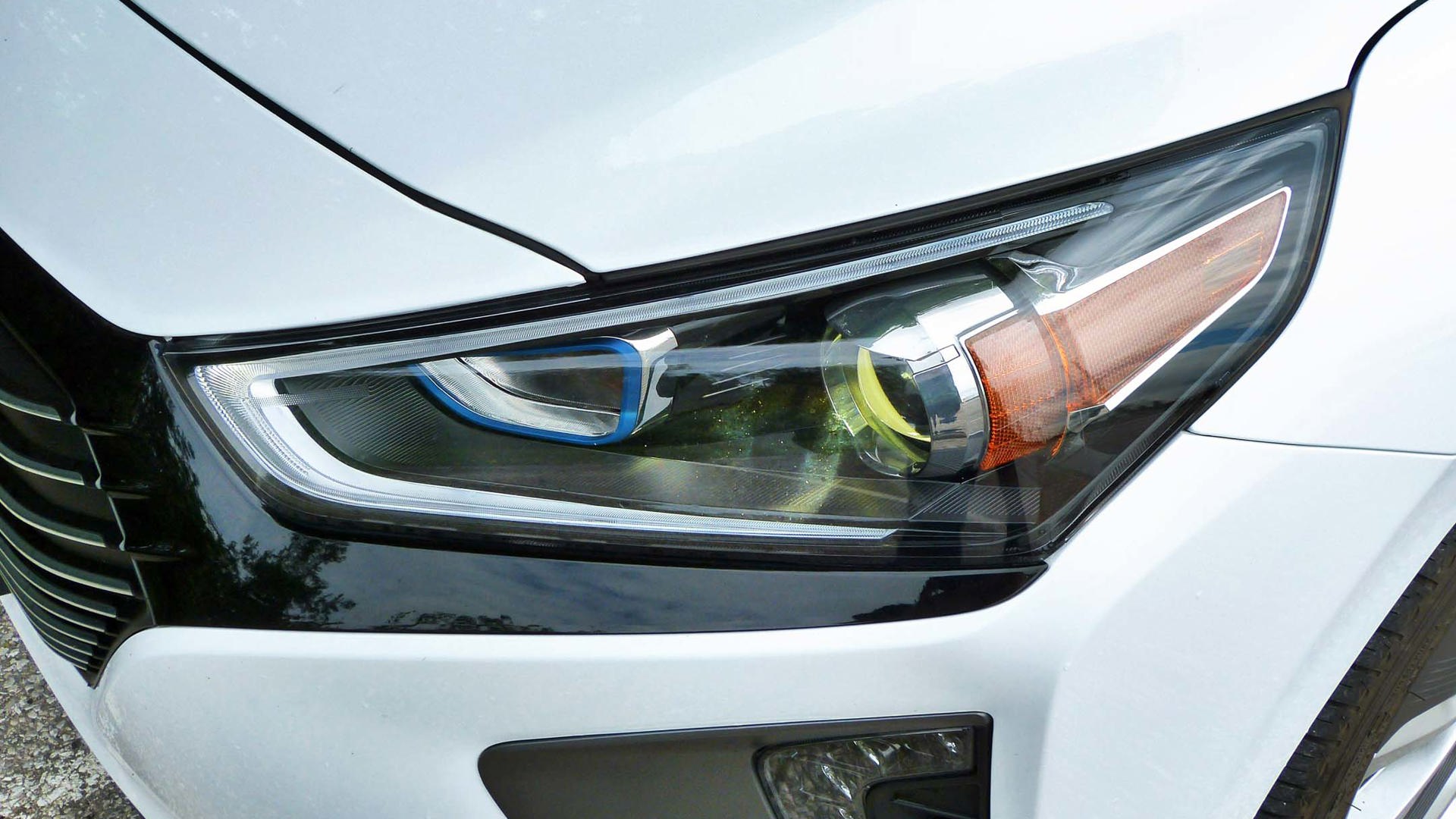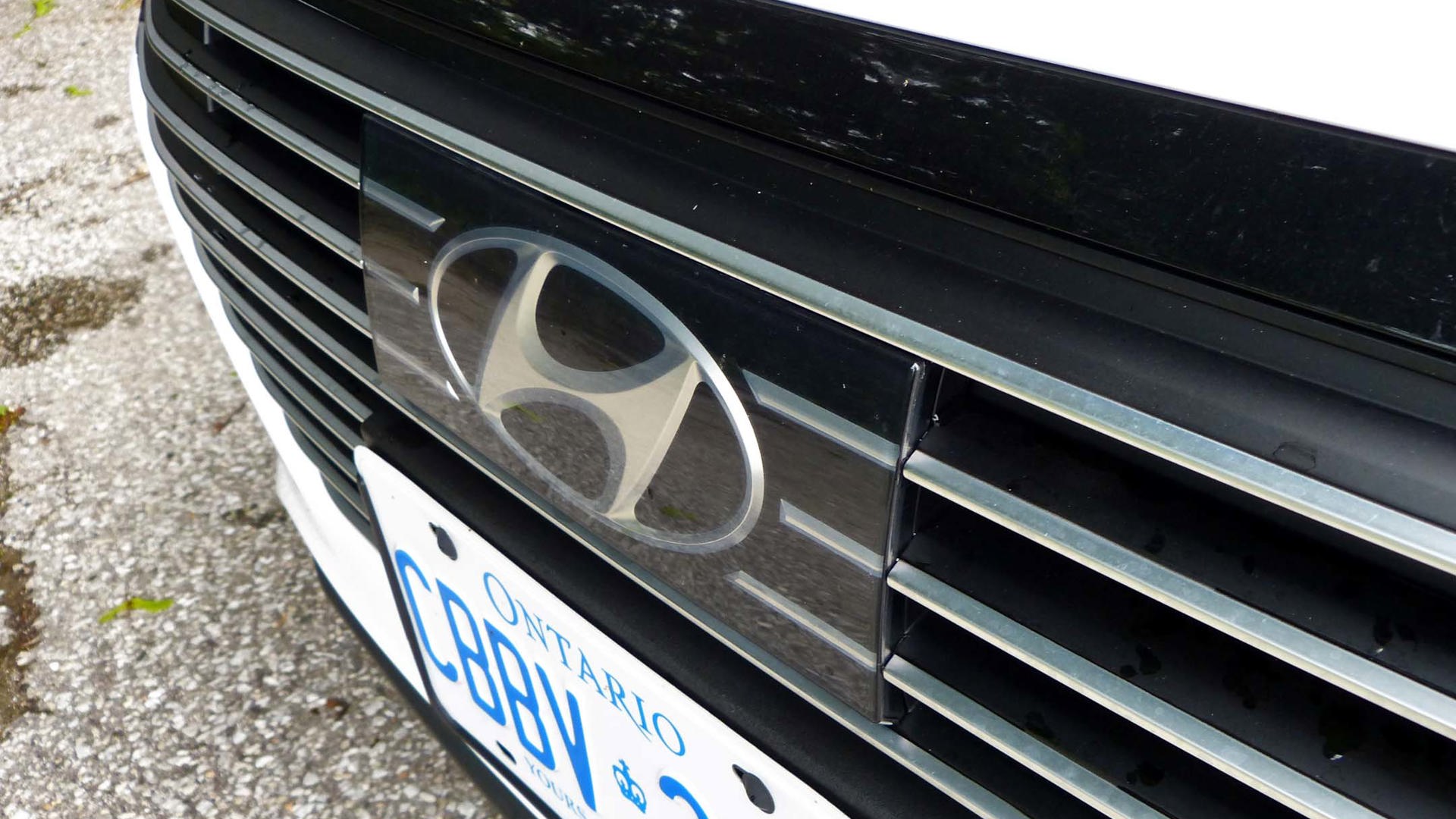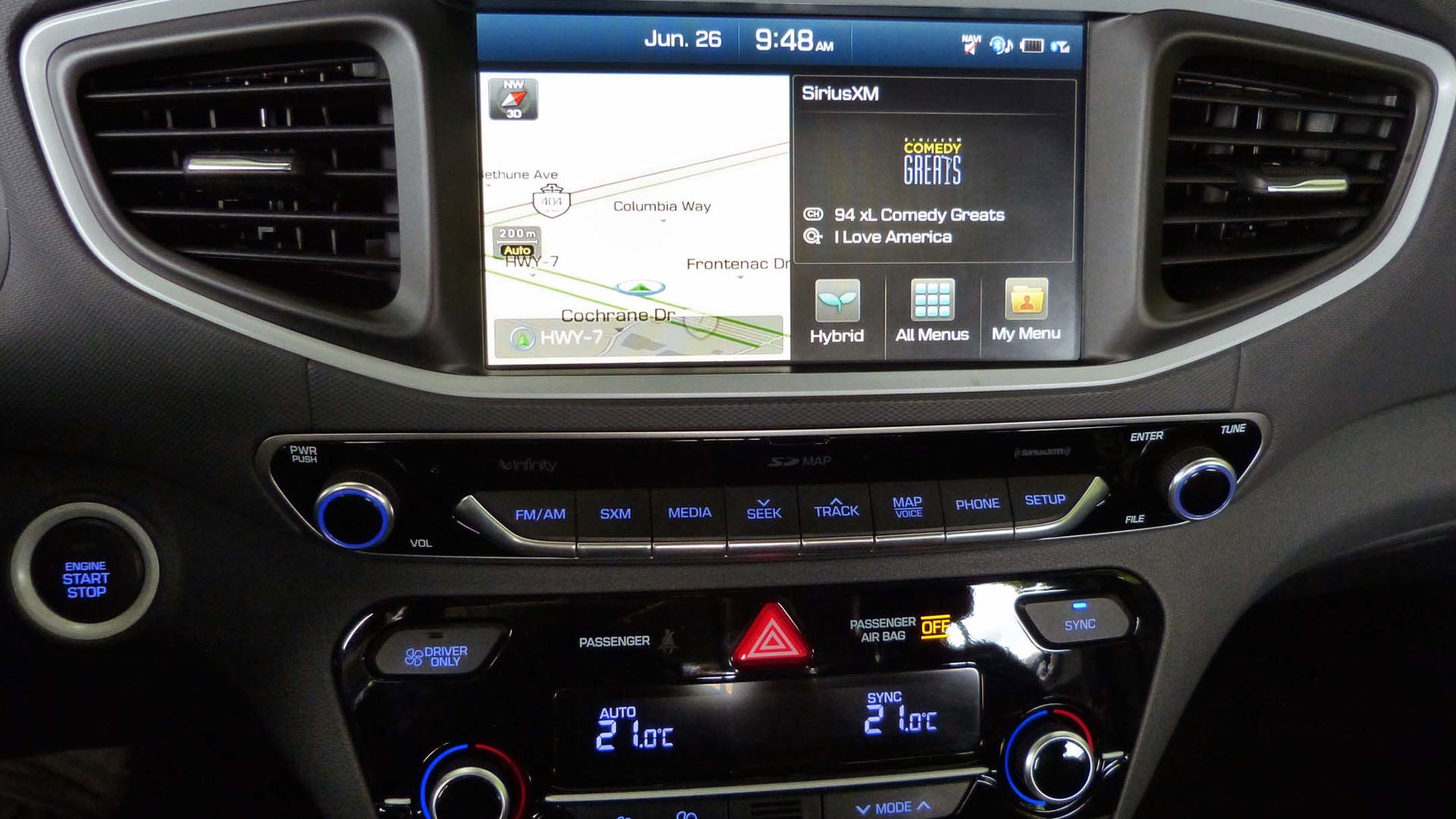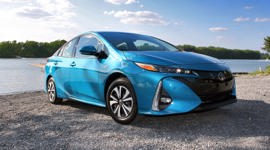 AutoTrader SCORE
AutoTrader SCORE
-
STYLING7/10
-
Safety7/10
-
PRACTICALITY7/10
-
USER-FRIENDLINESS8/10
-
FEATURES8/10
-
POWER9/10
-
COMFORT8/10
-
DRIVING FEEL8/10
-
FUEL ECONOMY10/10
-
VALUE9/10
Three. Point. Seven. That’s 3.7 L/100 km, in a regular hybrid. Not a plug-in, not on EV mode, not even in the city. That was my average over 360 km, up the 401. At the same speed as traffic around me, and no, not in a traffic jam. I didn’t get figures that good out of a Prius C – in the city. Geez, I barely got figures that good after a week in a Chevrolet Volt!
The Ioniq Hybrid is the current champion of fuel economy.
Three point seven.
I was gobsmacked. Bewildered, even. No flaw, no minor grievance, could possibly outweigh my newfound and completely surprising admiration for this $33,454 2017 Hyundai Ioniq Limited with Technology.
That number quickly became my answer to everything:
“The back end looks like someone tried to build an uglier Prius!” – 3.7.
“The rear seats don’t fold fully flat.” – 3.7.
“There is nowhere to store the tonneau cover.” – 3.7.
“The bottom steering-wheel spoke looks like a cloaca.” – 3.7.
The Ioniq is the new champion, at least on my watch, of fuel economy. Officially, it’s rated at 4.3/4.4/4.4 L/100 km city/highway/combined in this top-spec trim level. The $24,299 base-model Blue trim is even better, at 4.2/4.0/4.1 courtesy of its lower weight.
That’s better than the Prius, which is rated at 4.4/4.6/4.5, and I have to point out I couldn’t do better than 5.2 over a week in that car. So yes, the Ioniq Hybrid is the current champion of fuel economy.
But what if you don’t care about fuel economy? The Ioniq is still very much a small-car contender.
All Ioniq Hybrids are fitted with a six-speed DCT which I found well-mated to the engine. This isn’t a sports car, but you won’t be left wanting often. The 139 hp peak output isn’t mind-blowing but the 195 lb-ft of total system torque is nearly instant, giving the Ioniq an effervescent personality around town.
Engine noise when pushed is high, as you might expect, and passing on the highway requires some effort, but the Ioniq is very much a competitive compact car when it comes to day-to-day performance.
Wind noise – yeah, there’s a little, and suspension noise can be intrusive, but no more than any other offering from Hyundai. As compact cars go, the Ioniq can’t be faulted for NVH.
The handling is typically neutral and numb, with plenty of body roll and a touch of reluctance when asked to change direction, but it holds a line cleanly and is not busy – even in heavy crosswinds. Bumps in the road are dispatched competently, and the Ioniq rolls along with the sort of cheerful ease that made the Corolla such a sales darling for so long.
Feature content has long been a staple of Hyundai and it’s no different here. Heated steering wheel and heated seats will help ease the economy-sapping ravages of Canadian winter, and all models come standard with Android Auto and Apple Carplay. This top-spec includes the 8.0-inch centre stack touchscreen with recordable SiriusXM channels – a personal favourite, as well as automatic climate control. The full suite of safety systems are on board: blind-spot, lane-departure warning, as well as a good quality rear-view camera.
The instrument cluster would be the envy of many a brand with rich graphics and an easy-to-read, information-rich set up. The interior styling (despite the cloaca steering wheel) is clean and sophisticated – even if the aluminum pedals and flat-bottom steering wheel are chuckle-worthy anomalies. Further mirth can be had when pressing the drive-mode-select button. Press Sport and the steering weight becomes heavier, and the dashboard turns an angry orange – but nothing else of note occurs.
Spending multiple hours in the seat had me wishing for a longer base and slightly more padding, but this is a function of my pampered existence more than anything else. One could sit behind my 5'6" frame easily, with plenty of legroom to spare, and I found the cabin to be more spacious than the Ioniq’s exterior footprint would suggest.
Aesthetically, the Ioniq is interesting from front on. From the side profile, I’d even call it handsome. From behind? You’ll want to walk back around to the front.
Cargo space is a generous 750 L with the 60/40-split rear seats all in place, but the deep well that helps pad this number doesn’t come with a false floor, so it’s impossible to create a flat surface with the seats folded down. Instead there’s a 2- to 3-inch step between the regular cargo hold and the seatbacks. This then, is not a good way to transport a Billy bookcase from Ikea, but it will take several loads of grocery shopping and swallow a week’s worth of small-family cargo with ease.
The Ioniq is a consummate compact car with an easy-to-load rear hatch, fantastic feature content and thoroughly competitive on-road manners. On its own, it’s a compelling offering for any small family or urban dweller.
But the Ioniq has one big show-stopping trick up its sleeve that elevates it far above the competition.
“3.7”.
| Engine Displacement | 1.6L |
|---|---|
| Engine Cylinders | 4 |
| Peak Horsepower | 139 hp |
| Peak Torque | 195 lb-ft |
| Fuel Economy | 4.3/4.4/4.4 L/100 km city/hwy/cmb |
| Cargo Space | 750 L |
| Model Tested | 2017 Hyundai Ioniq Limited Technology |
| Base Price | $31,749 |
| A/C Tax | $100 |
| Destination Fee | $1,705 |
| Price as Tested | $33,454 |
|
Optional Equipment
None
|
|
